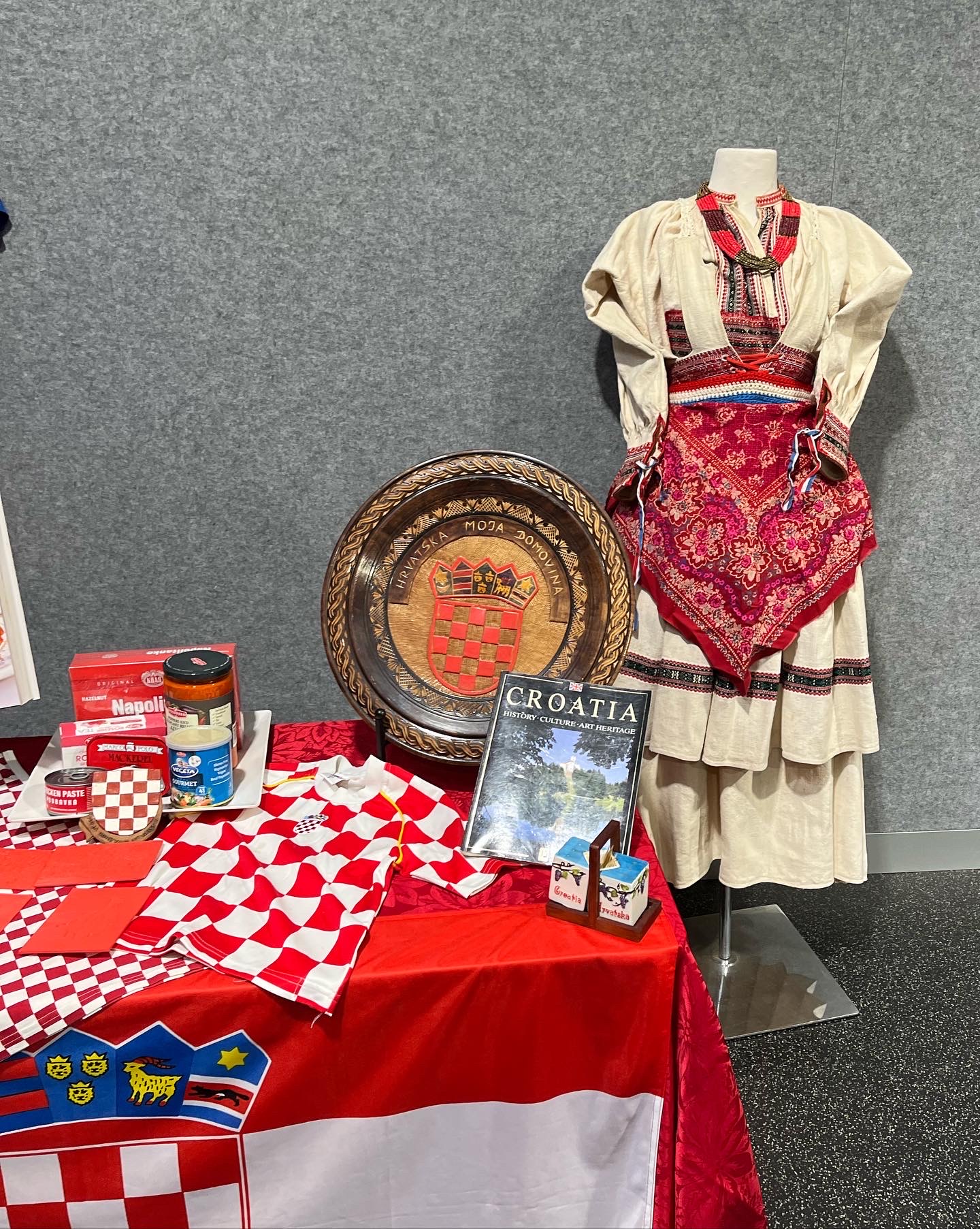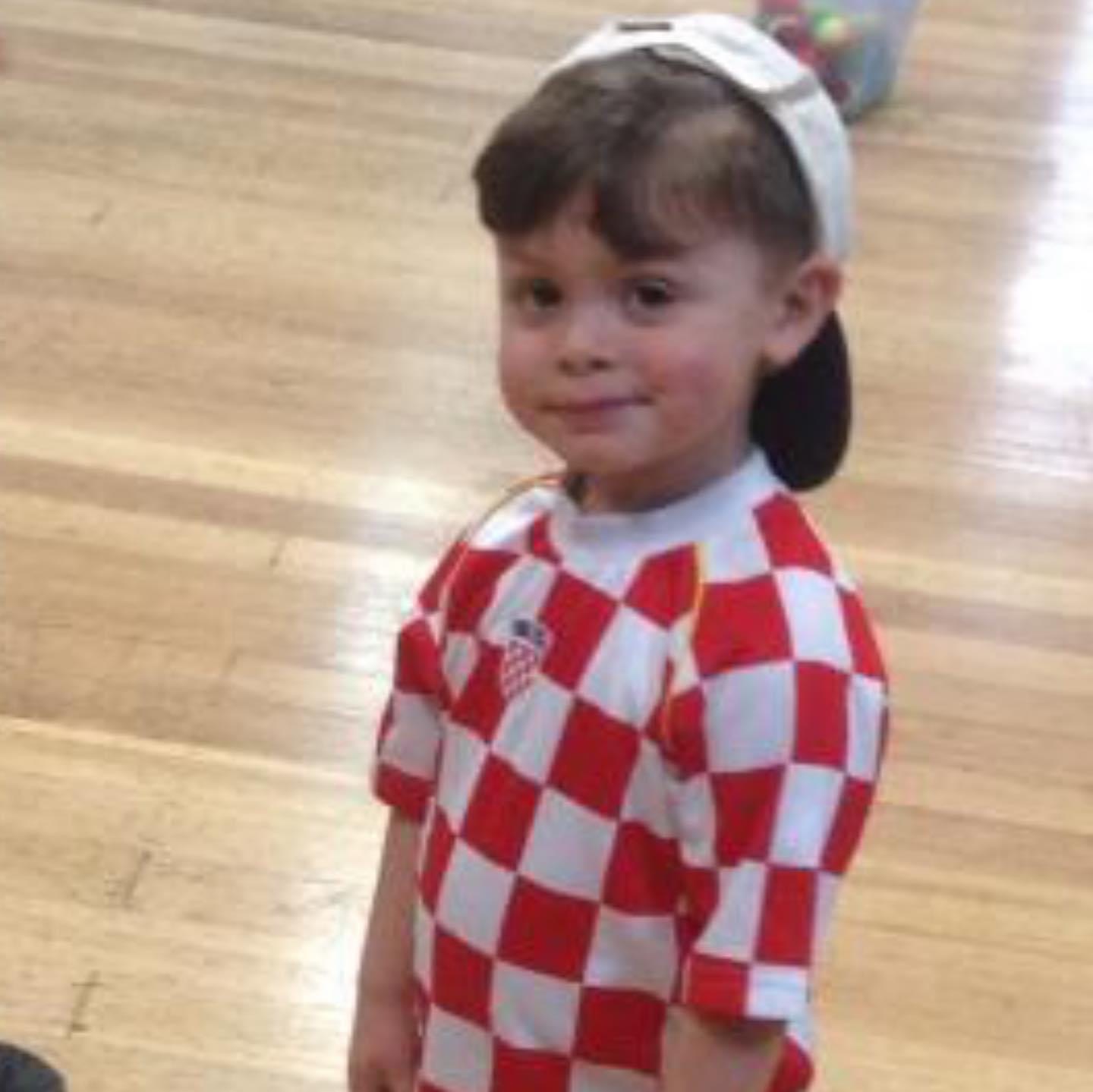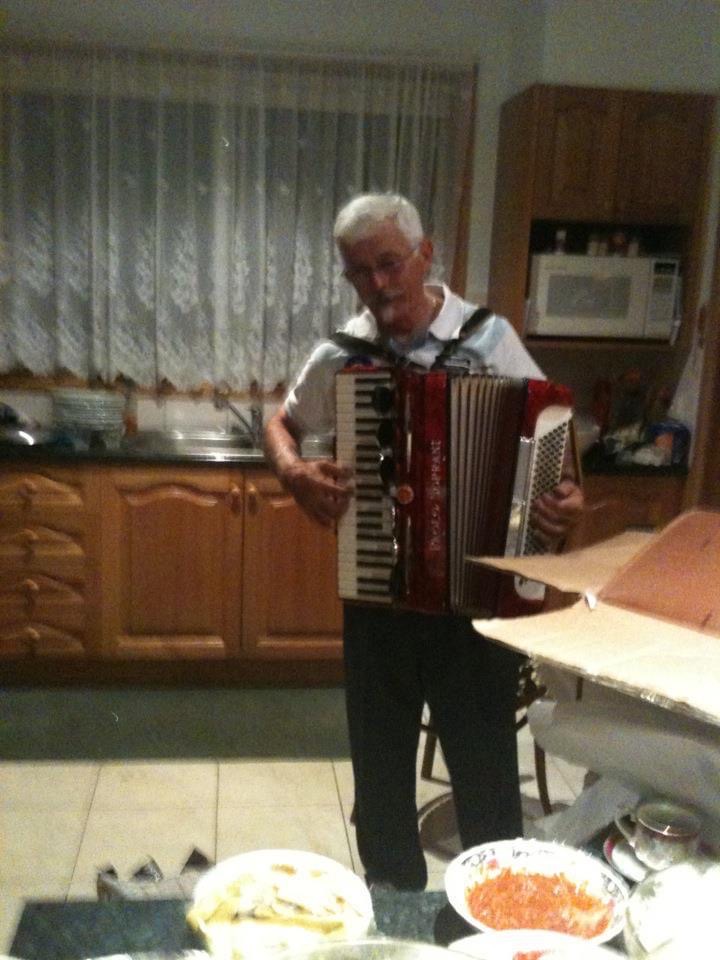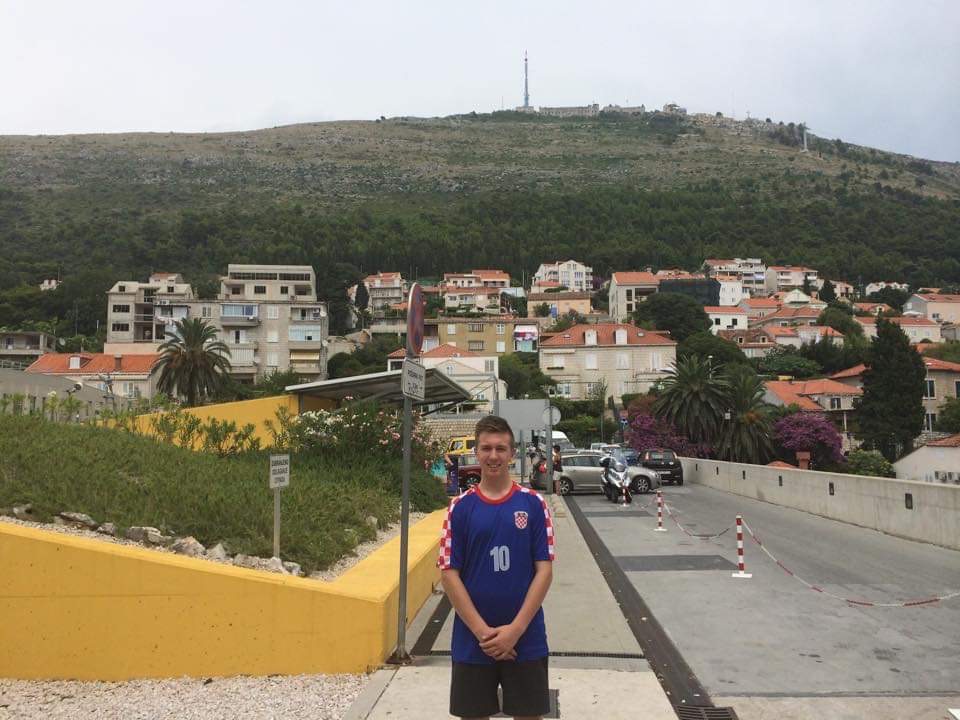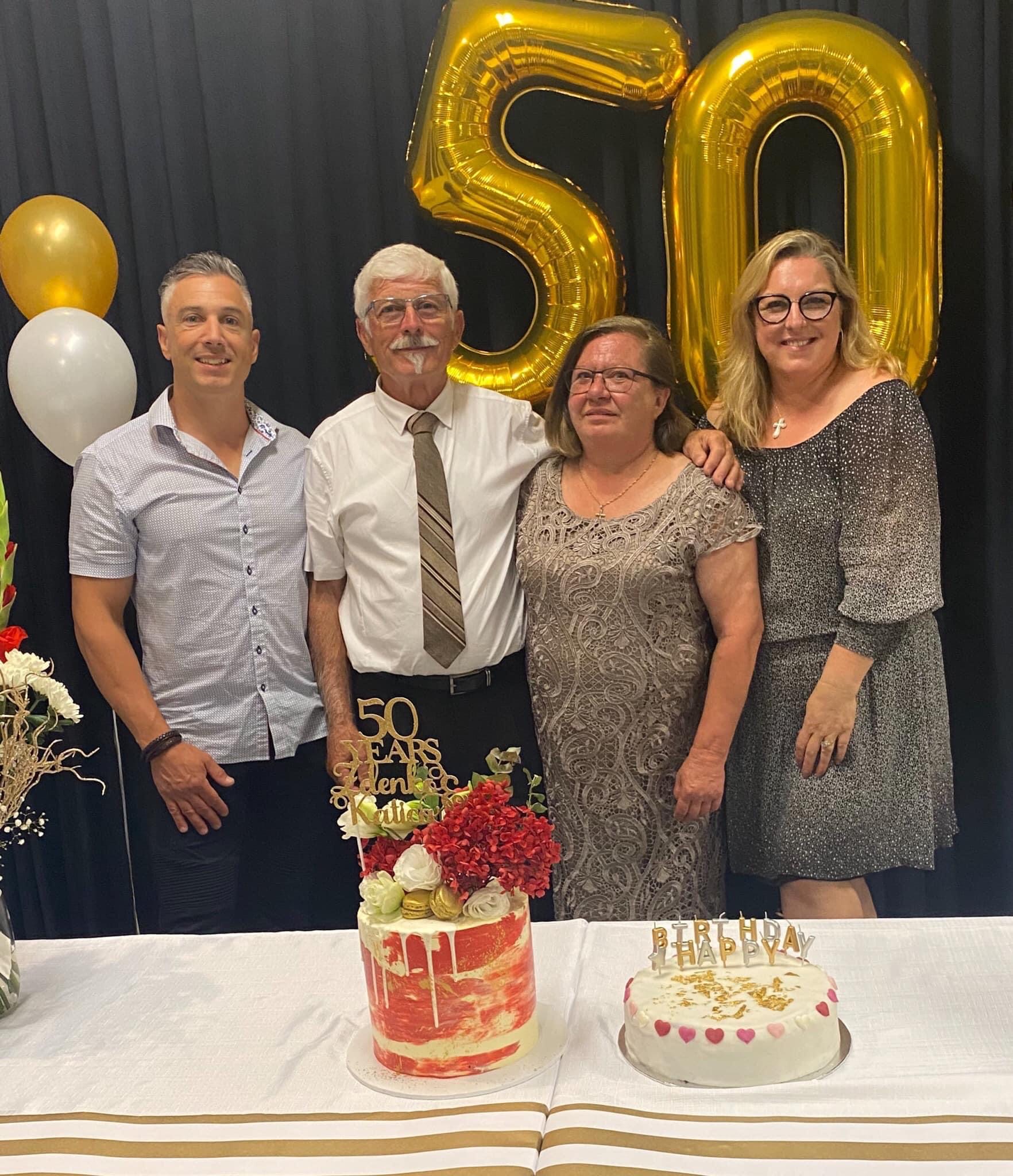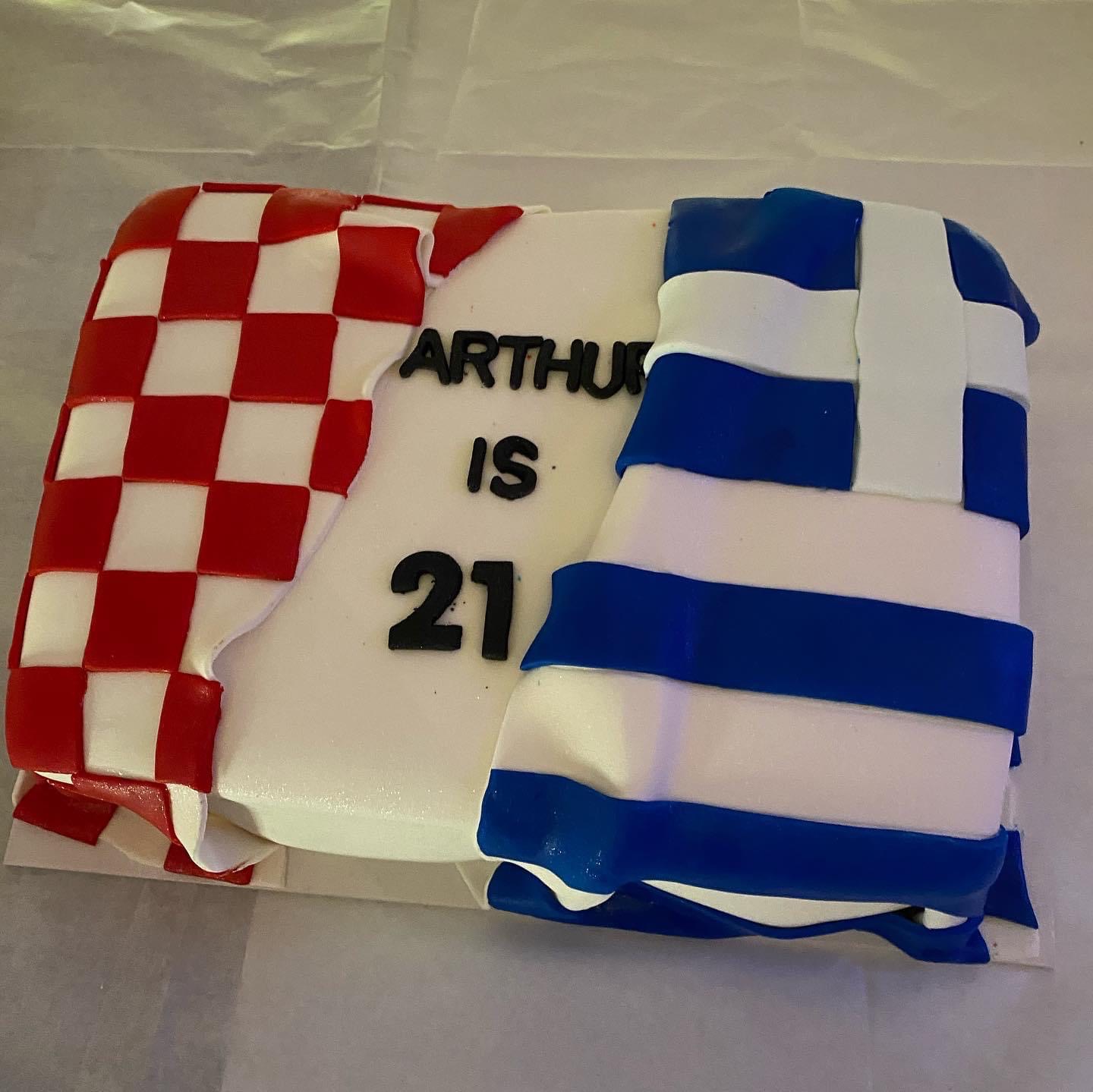Memories of Croatia in 1996: Reflections of a 5-Year-Old
August 11, 2022 - Memories of Croatia in 1996, as remembered by a 5-year-old visiting for the first time from America.
I was recently interviewed by someone in the United States working on a research project with Croatians and Croatian-Americans about the relationships between tourists and locals in Croatia. As a Croatian-American and someone who has lived in Croatia for seven years, I was a good fit.
The wonderful hour-long Zoom call took me on a journey through my Croatian adventures, from the Croatian influence in my family growing up in San Diego to my first visit to Croatia in 1996 and every visit after that until I moved here in 2015.
And it got me thinking a lot about my first trip to Croatia in 1996. I was 5 years old.
My family and I flew into Germany and drove from Frankfurt to Croatia, passing through German and Austrian towns along the way before reaching Zagreb. Which I remember vividly.
As Croatia smelled fresh of war, I remember being unable to sleep that first night in our Zagreb hotel, thinking there was a soldier in the closet. It was a haunting experience for a 5-year-old, and I can paint the interiors of that hotel room in my mind now.
I remember playing with pigeons in Ban Jelacic Square, which is something I recall every time I visit the capital now. If only I were as fearless of pigeons as I was back then...
We drove from Zagreb to Rijeka to visit my grandmother's sister and her family before taking the overnight ferry down to Split (remember when that still operated?).
Oddly enough, we chose not to spend much time in Split, even though it is the city where my father was born and where my grandfather and grandmother raised their family before moving to New York City in 1958. I do, however, have this photo of my brother and me at the ferry port. How those Jadrolinija ships have hardly changed in the last 26 years.
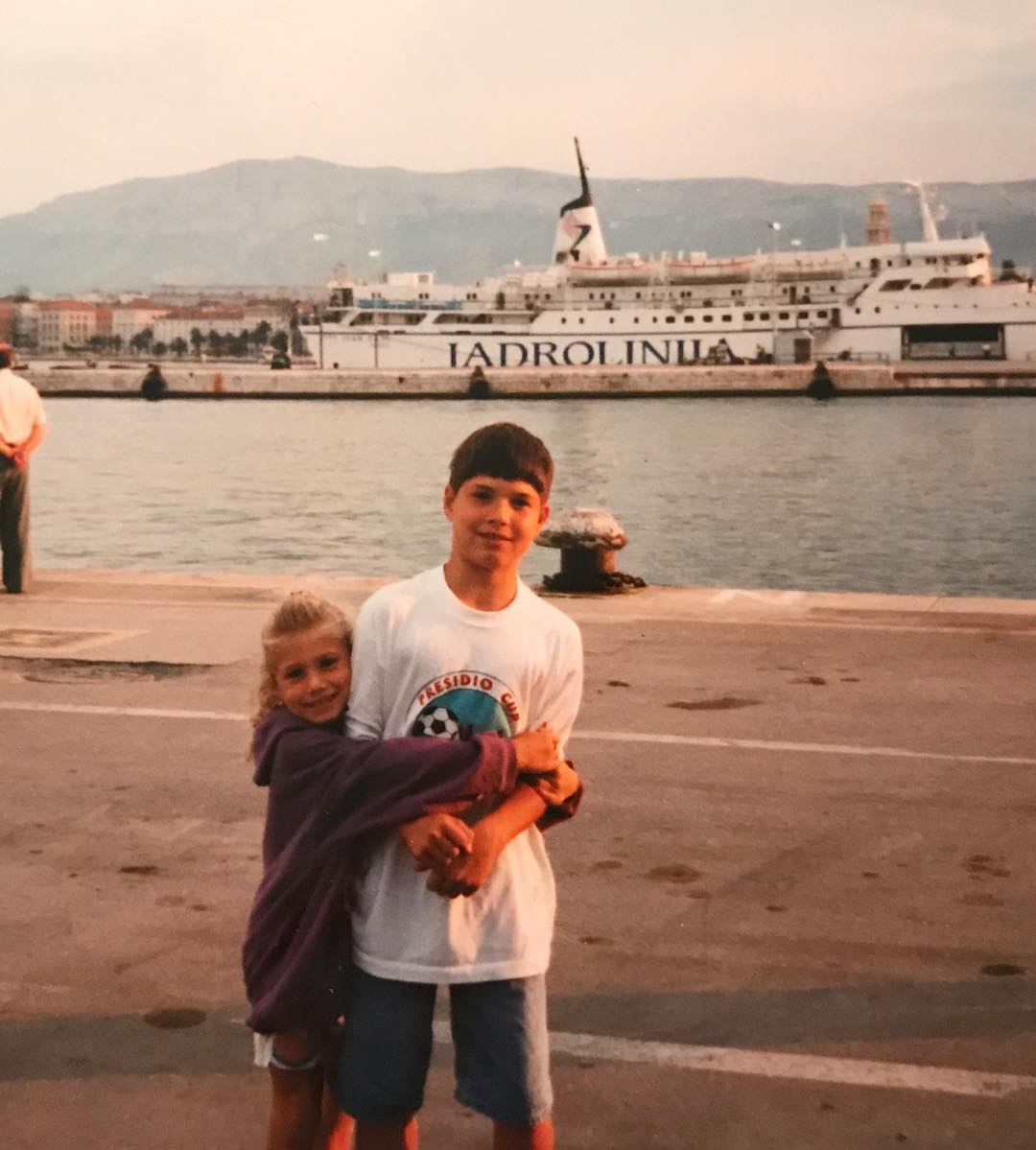
We made our way to Trogir, the town where my grandparents met in their teenage years. My grandfather's family roots are in Trogir, well, technically from a small village in the hills above Trogir called Prapatinica. His family ultimately migrated from the selo to the 'city'. My grandmother's family moved to Trogir from Stari Grad after World War II, which is where one of her brothers continued to live when we visited in 1996. I will never forget eating pršut and sir amongst the chickens in his small outdoor shack.
The memories I can recall most from that trip are with my mother's family in a tiny village outside of Metkovic called 'Kosa'. The seven-house village sits on the river, with two surnames ruling the territory. We are all somehow related.
We stayed at my mother's family home - where my dida and baba raised my mother and her 6 siblings. My mother hadn't seen her family in over a decade, though this absence carried more significance, considering her younger brothers had just fought in the Homeland War. My brother and I spent a lot of time dressing up in their uniforms.
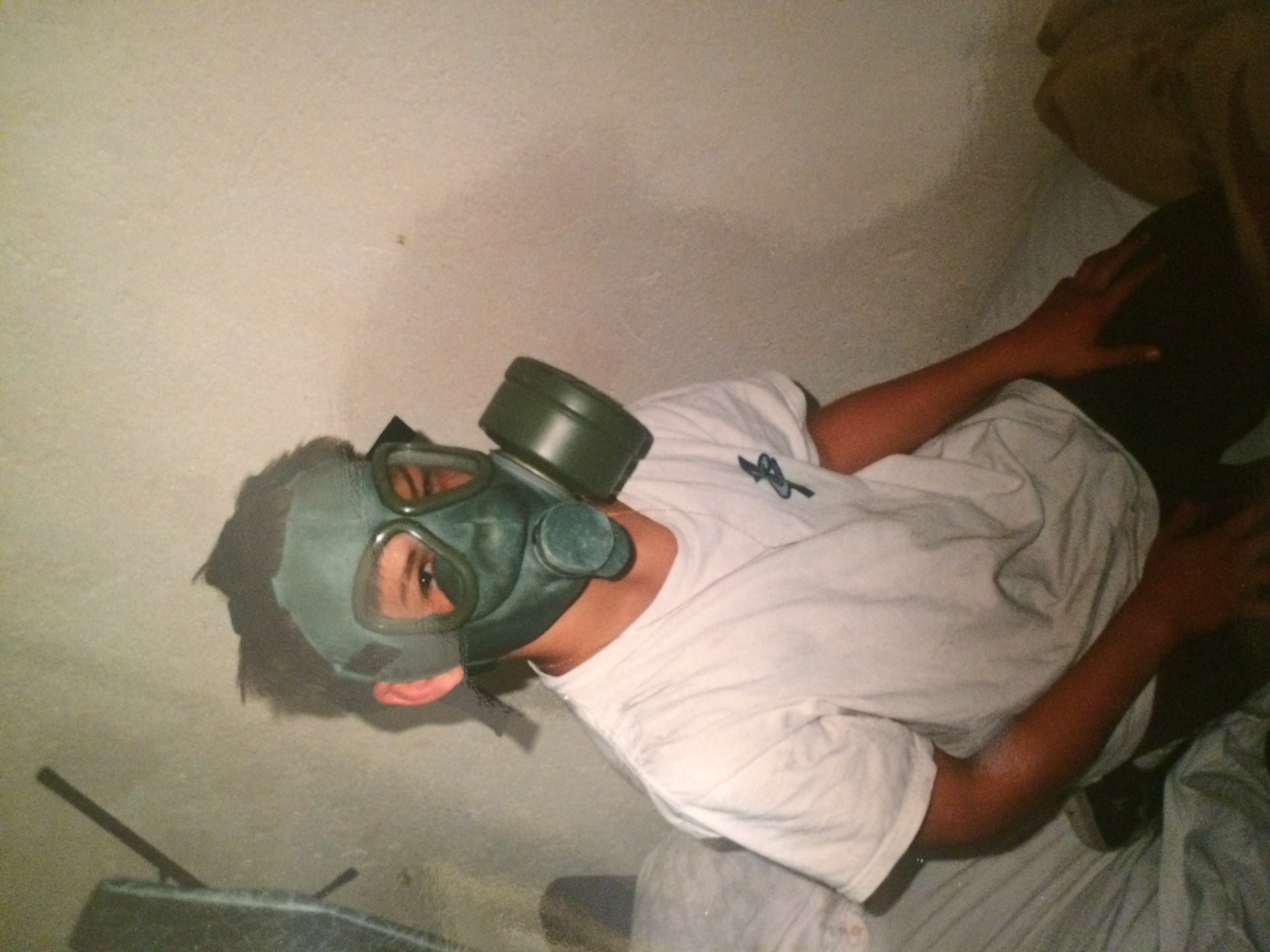
I have home videos of me chewing on crusty white bread, spread with butter and šipak marmalade, as that was my go-to breakfast in Croatia that summer (the sugary cereals of America were quickly forgotten). The few words in Croatian I knew then were endlessly repeated, from 'neću' to 'šta?' and 'jedan, dva triiiii!'.
I remember playing with the other village children on the river, setting out on our small trupina boat to reach the farmland across the way, where my family cultivated their crops to make a living. And the goats - I remember the many baby goats! If only I knew what their fate would be then...
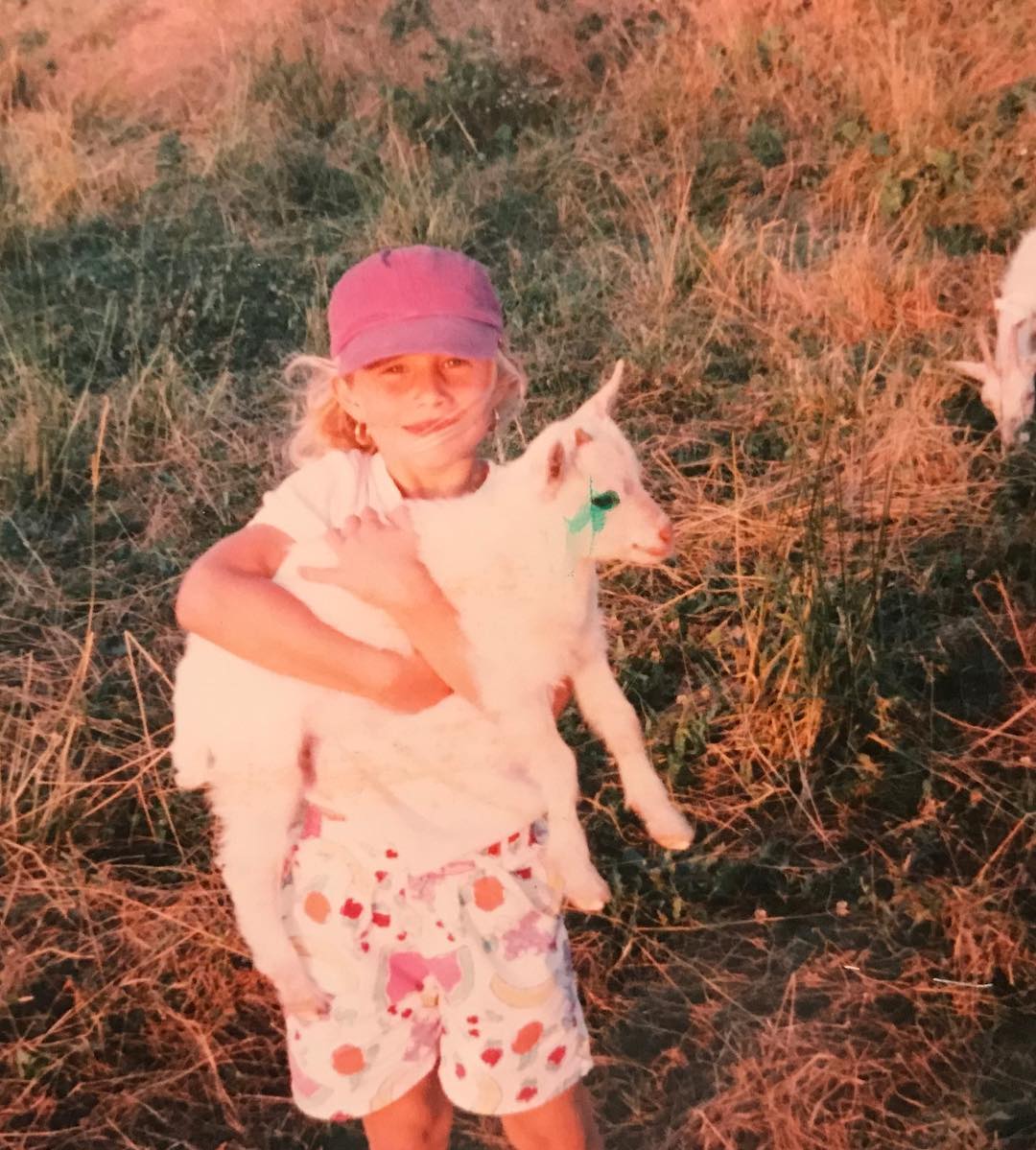
Being from the Neretva River and all, frogs are the ultimate delicacy. And my uncles were experts at hunting them - a unique craft that is done explicitly in the early morning hours. Now, anyone that knows a bit about frog culture in Dalmatia, is that it is usually eaten two ways - in a brudet (and in Neretva, this means stewed with river eel, too), or fried - you now, breaded like schnitzel or fried chicken.
I remember 15 of us huddled around the small family dinner table eating, what I thought, was fried chicken. And as any 5-year-old from America might do, dipping it in ketchup to imitate chicken fingers. I grew suspicious after I glanced over at my father eating the same thing, considering he had been a pescatarian since his early 20s. "Hmm.. If Tata is eating it, it can't be chicken."
And thus, my first experience eating frogs was had, with ketchup, at 5 years old.
I remember swimming at Klek beach, now just a short drive from the new Peljesac Bridge, which is where this famous photo was taken.
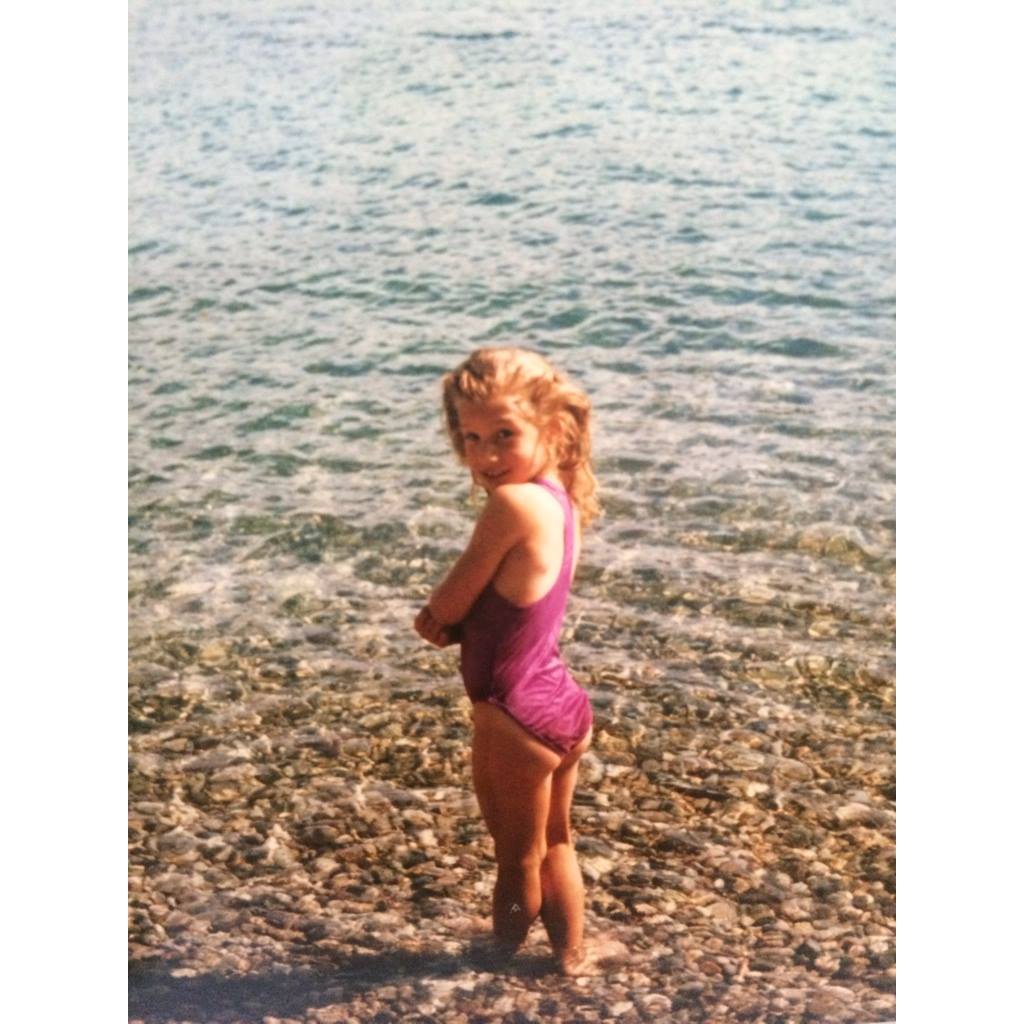
And all I remember about our day trip to Dubrovnik is serving this look on Stradun.
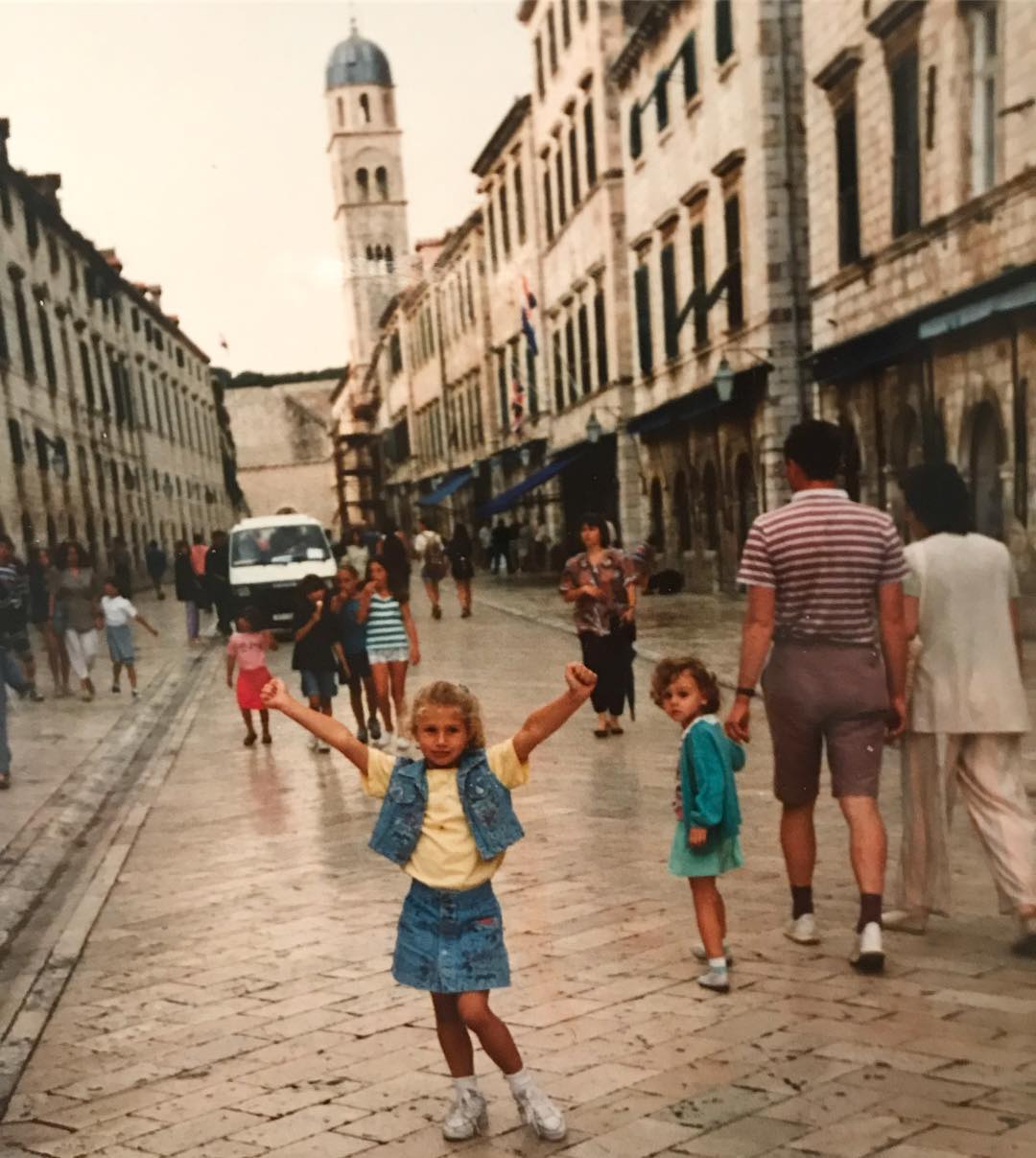
For more, make sure to check out our dedicated lifestyle section.
Croatian Diaspora Celebrates Victory and Homeland Thanksgiving Day on Mljet
August 8, 2022 - Members of the Croatian diaspora from San Pedro, California, celebrated the Victory and Homeland Thanksgiving Day last Friday on the island of Mljet. A closer look at the celebration organized by Niko Hazdovac and his wife Lucija, the team behind San Pedro travel agency Adriatic Travel.
Niko Hazdovac, his wife Lucija, and their family run the successful travel agency Adriatic Travel in San Pedro, California. They host a celebration (fešta) every year the night before Victory and Homeland Thanksgiving Day and Day of Croatian Defenders in his small hometown of Kozarica on Mljet for his friends and locals. The fešta took place again last Friday.
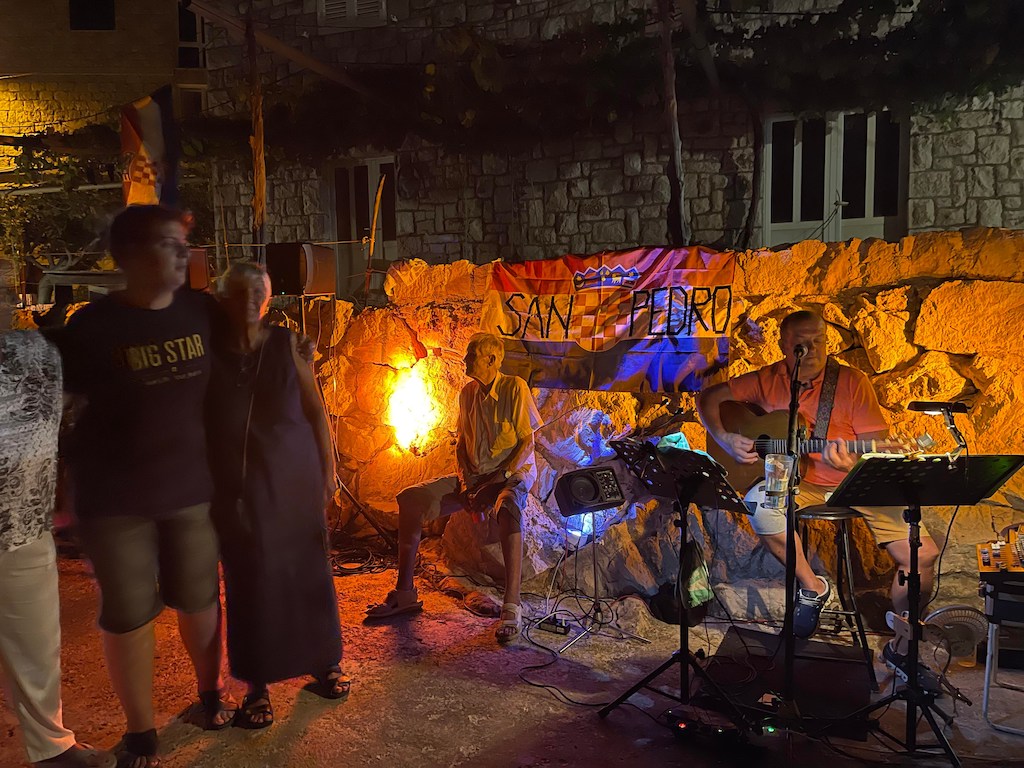
“Everyone had a great time with the songs of the Dubrovnik pop artist Ilko Đivanović. With local food, Mljet wine, and good music, we danced until late into the night, and celebrated Oljua with fireworks,” said Ane Mljeċka, a well-known Croatian emigrant who was born on Mljet and now lives in the USA.
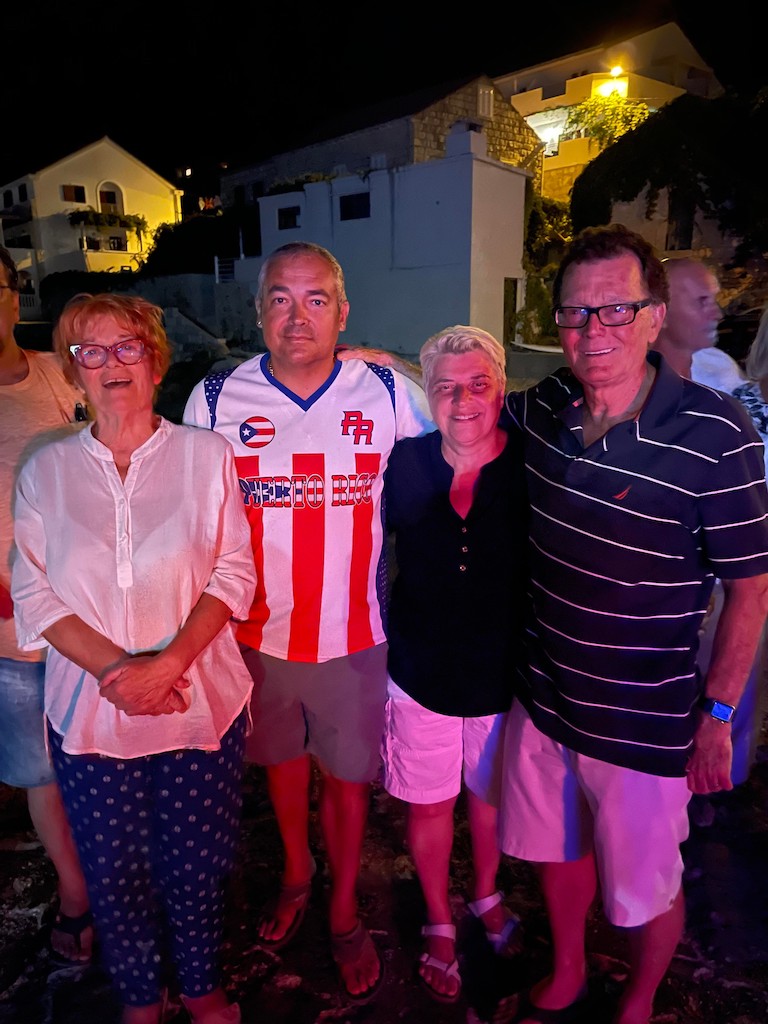
Every year the fešta organized by the American emigrants has a humanitarian aspect, and this year, donations were collected for the restoration of the church in Kozarica.
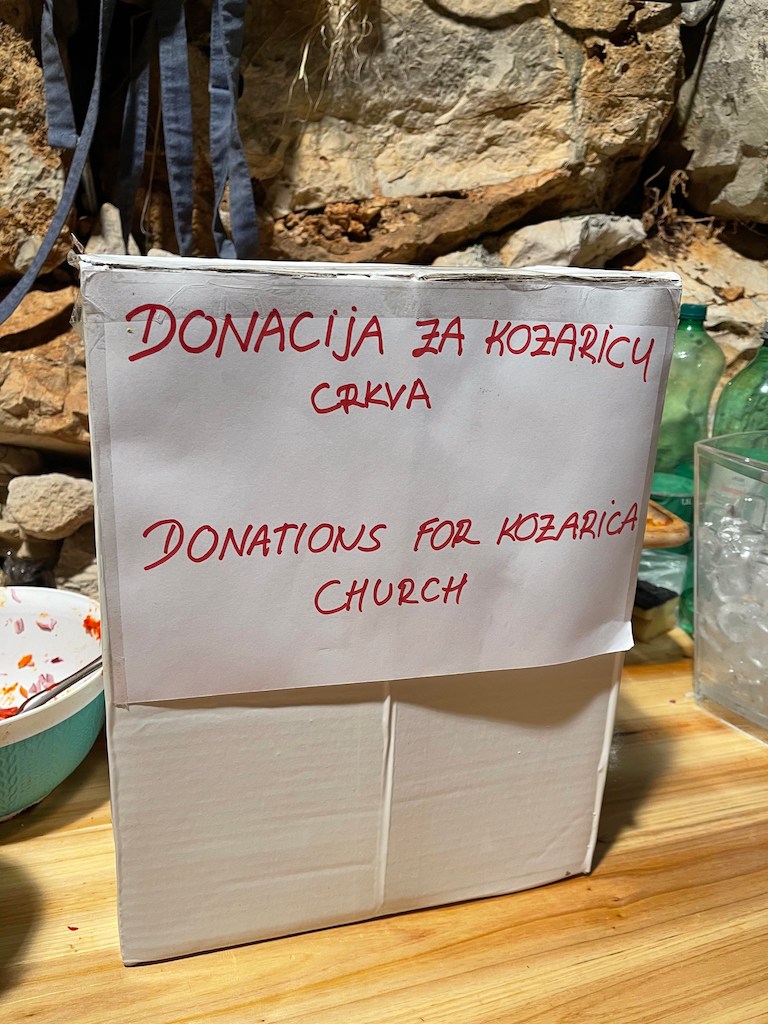
Victory and Homeland Thanksgiving Day and Day of Croatian Defenders commemorates the military victory on August 5, 1995, known as Operation Storm (Oluja), when the Croatian army took over nearly one-third of the Croatian territory occupied by the Serbian paramilitary forces and Yugoslav People’s Army (JNA). In only 84 hours of the military-police operation Oluja, in which almost 200 thousand Croatian soldiers participated and where over 10,000 square kilometers of the occupied territory was freed, the Croatian army restored sovereignty over occupied central and southern parts of the country, paving the way for the peaceful reintegration of eastern Croatia in January 1998.
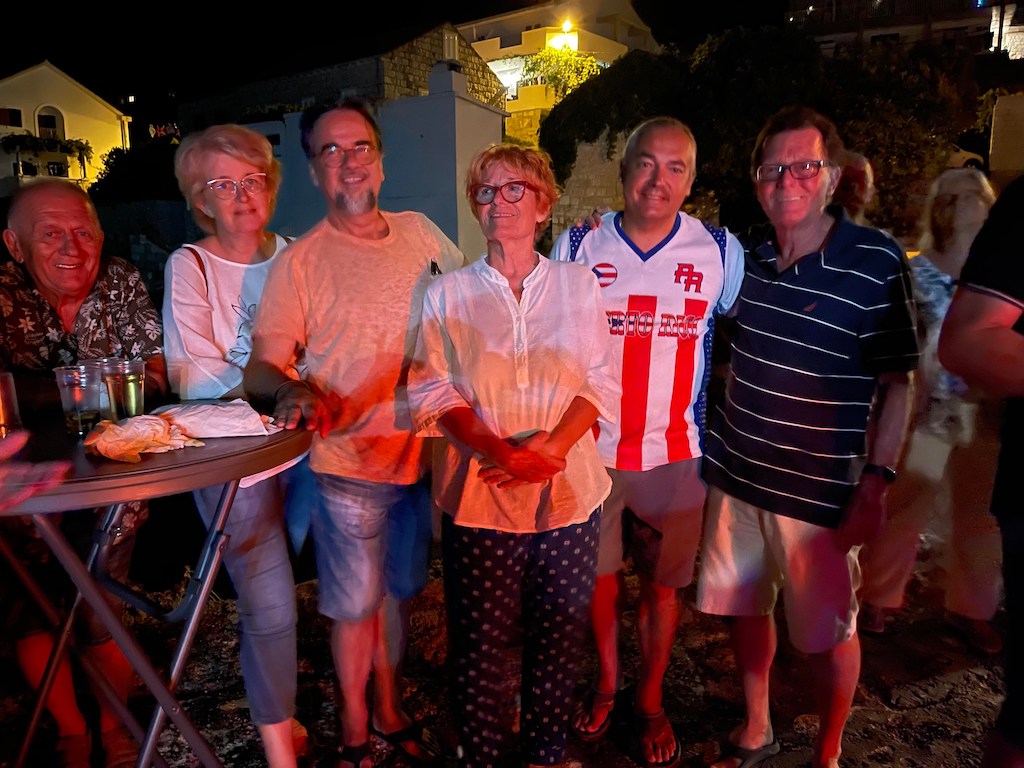
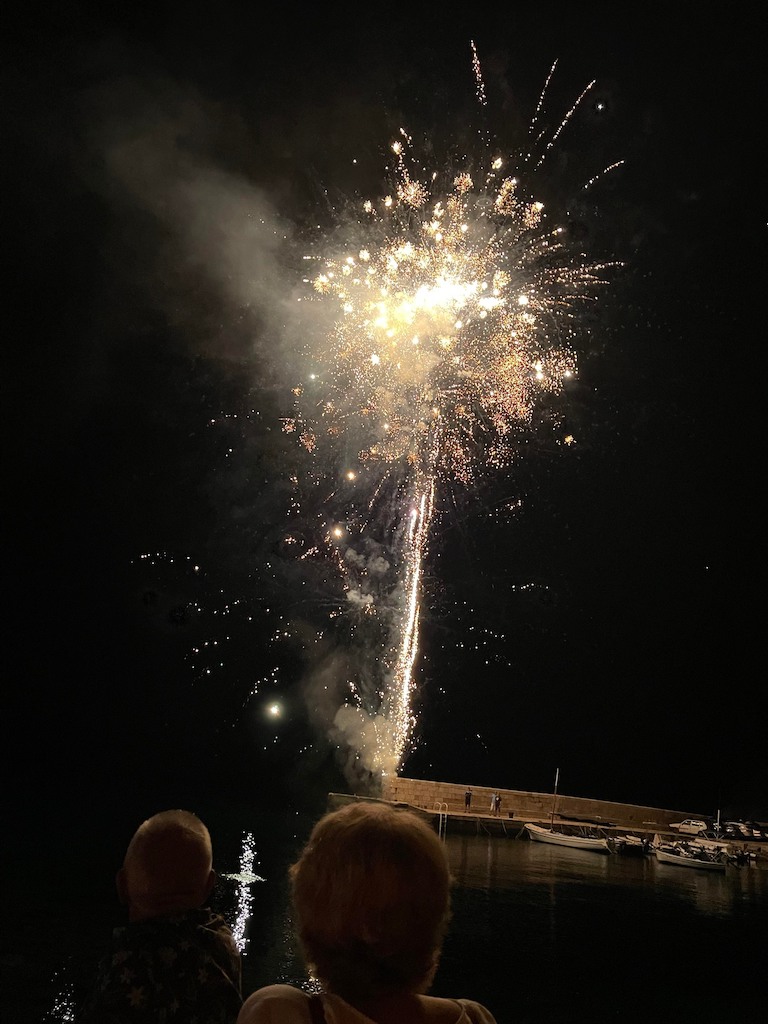
What a night!
Photos credit: Ane Stražičić Rodriguez
For more, make sure to check out our dedicated lifestyle section.
Croatian Nationals One Of Largest Groups Of Labour Migrants In Germany
ZAGREB, 22 July 2022 - Croatian nationals residing in Germany are the fourth largest group of immigrants from the European Union to immigrate exclusively to get a new job, according to this year's census, published on Friday by the German Federal Statistical Office in Wiesbaden.
In the census, 131,000 surveyed German citizens holding Croatian citizenship said they had immigrated to Germany solely for the purpose of employment, the Federal Statistical Office told Hina.
Croatia is thus ranked fourth regarding the number of labour migrants from a European Union member state.
Poland tops the list with 380,000 labour migrants, followed by Romania with 271,000 and Italy with 208,000 labour migrants.
The numbers do not include persons who immigrated to Germany for a different purpose, such as family reunification or study, and then found employment there.
At the end of 2021, there were 434,610 Croatian nationals living in Germany.
A year before that, the number stood at 426,845.
In 2013, when Croatia joined the European Union, there were 240,543 German residents with a Croatian passports.
Of the countries outside the European Union, countries of the former Yugoslavia are also near the top of the list regarding the number of citizens who immigrated to Germany to find employment.
For more, check out our politics section.
First Digital Census of Croats and Descendants in Argentina Presented
July 15, 2022 - The first digital census of Croats and their descendants in Argentina was presented on the premises of the Croatian Heritage Foundation.
The first digital census of the Croats and their descendants in Argentina was presented in the premises of the Croatian Heritage Foundation (https://matis.hr/) on Tuesday. The census was conducted from June 30, 2020 to June 15, 2022 by Cristian Šprljan, Iva Vidić and Jelena Nadinić.
The census was presented by Jelena Nadinić, a member of the Committee on Croats outside the Republic of Croatia, and returnees - immigrants Paula Gadža, Nadir Ivanović and Soledad Rusoci.
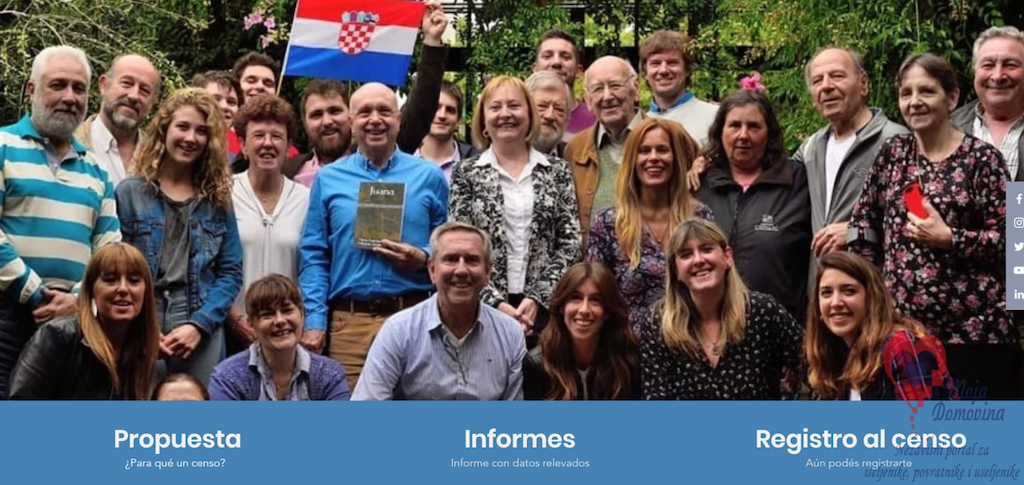
The census included forty general and special questions, and all communication networks were used in its implementation. It was proudly pointed out that the project united all Croatian communities in Argentina and that many prominent Croats in Argentina participated in the call for participation in the census. The census achieved its goals, considering that it was on a voluntary basis, and there were totally 18,041 registered participants.
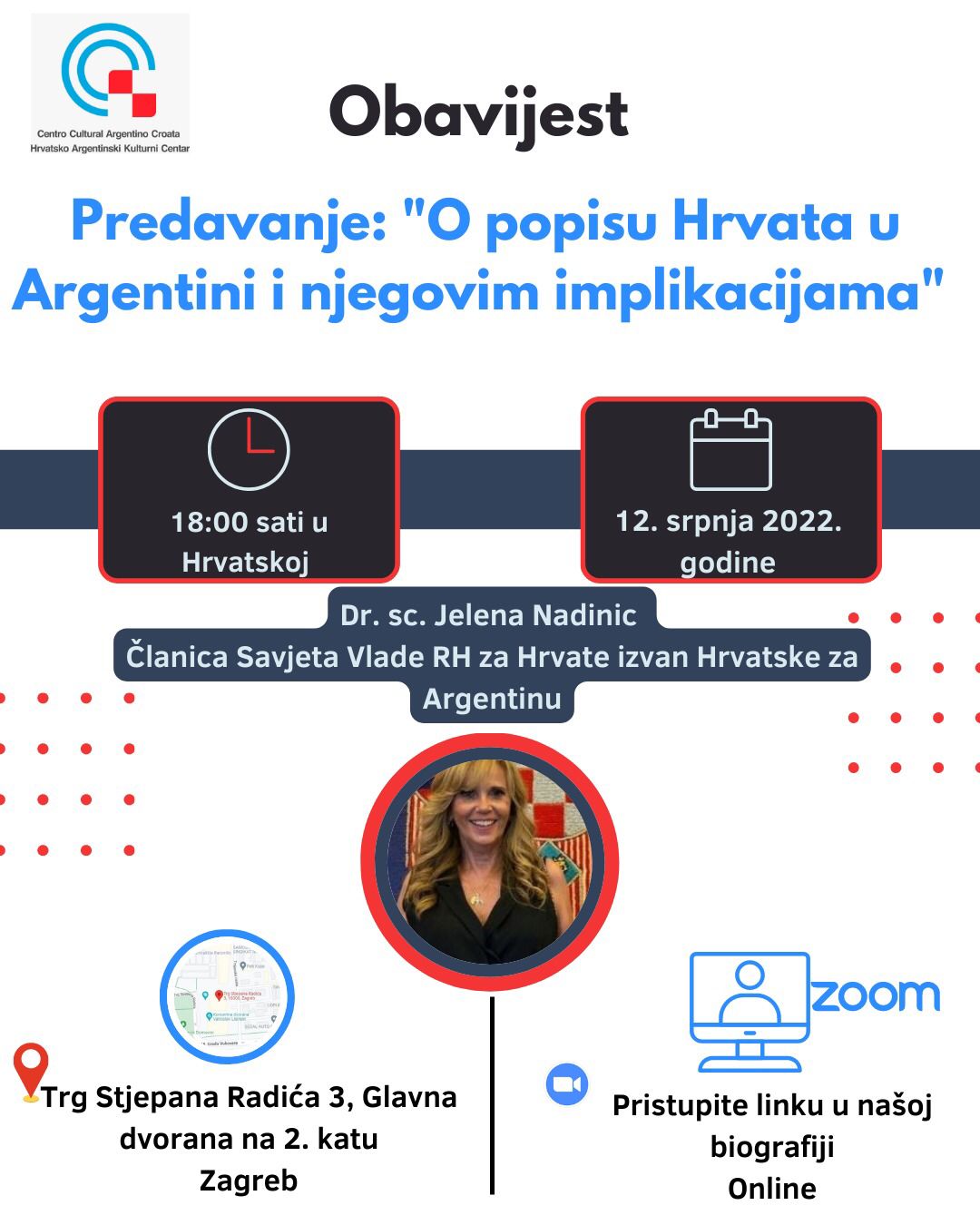
A poor turnout of young people was observed. It was pointed out that 97% of respondents were born in Argentina and that their average age was 42 years. Young people between the ages of 14 and 42, 6,800 of them, were specially surveyed in the period from March 23 to 29, 2022. The results showed that many descendants, even 67% of them, do not speak Croatian language because there is a lack of learning opportunities. Although a large part of the Croatian descendants in Argentina is very active in Croatian communities and associations, many do not have Croatian citizenship. The conclusion of the census clearly indicates that it is very important to promote Croatian heritage in the future. Projects like this could be implemented in other countries as well to get a more accurate number number of the Croatian emigrants in the world.
For more, check out our lifestyle section.
NFCACF 29th Annual Assembly of Delegates Held in Baltimore, Maryland
July 14, 2022 - The National Federation of Croatian Americans (NFCACF) convened the 29th Annual Assembly of Delegates in Baltimore and with thirty delegates from a dozen Croatian American groups participating in the hybrid event held on July 1st and 2nd. The weekend affair was held at the Baltimore Waterfront Marriott Hotel, right across the water from the famous Baltimore landmark, Fort McHenry.
It was a productive and fun meeting integrated within the Croatian Fraternal Union (CFU) Junior TamFest. There were thirteen Junior Tambura Ensembles that performed throughout the weekend and with Jason Ottmann as the festival's guest conductor. Also, it was wonderful to have a Tamburitzan Catholic Mass on Saturday afternoon with co-celebrants Father William Hritsko and Father Maurus Dolcic. There were social events with tambura music and dance on both weekend nights. The Saturday music was provided by the Orkestar Zadnja Stanica of Steelton, Pennsylvania. Ed Pazo, CFU National President was the Master of Ceremonies, all weekend for all the Junior Tamfest activities and it was a music-filled weekend.
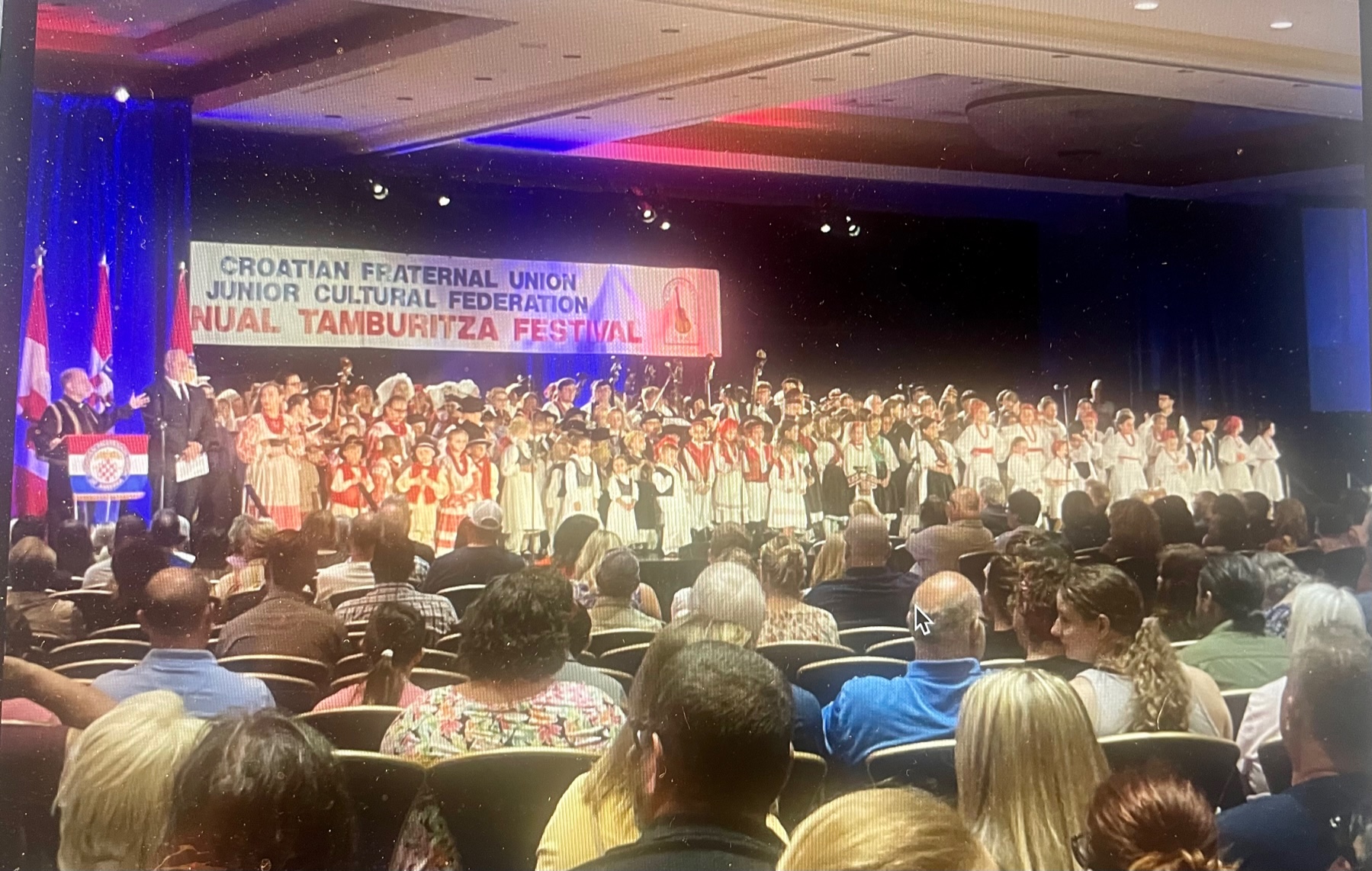
President Steve Rukavina opened the private Friday delegate's meeting with his annual NFCACF State of the Union address. The long-term President shared that the organization was coming off a busy last twelve months. He was pleased that we have eight Board Members and committee members under the age of forty and emerging as super activists within our organization. He shared updates about the Visa Waiver Program and the positive progress with the bilateral Avoidance of Double Taxation Treaty. The President discussed ways that the NFCACF and the Croatian American community has shown support for Ukraine's efforts against the Russian aggressor. The NFCACF has been collaborating with the Central Eastern European Coalition (CEEC) too now with a heavy emphasis on the war in Ukraine. President Rukavina gave a long list of developments in Bosnia and Herzegovina, including many nuanced details about the challenges facing the Croat community there, especially with electoral reform issues, dealing with the Dayton Peace Accord being circumvented and with the October 2nd election pending.
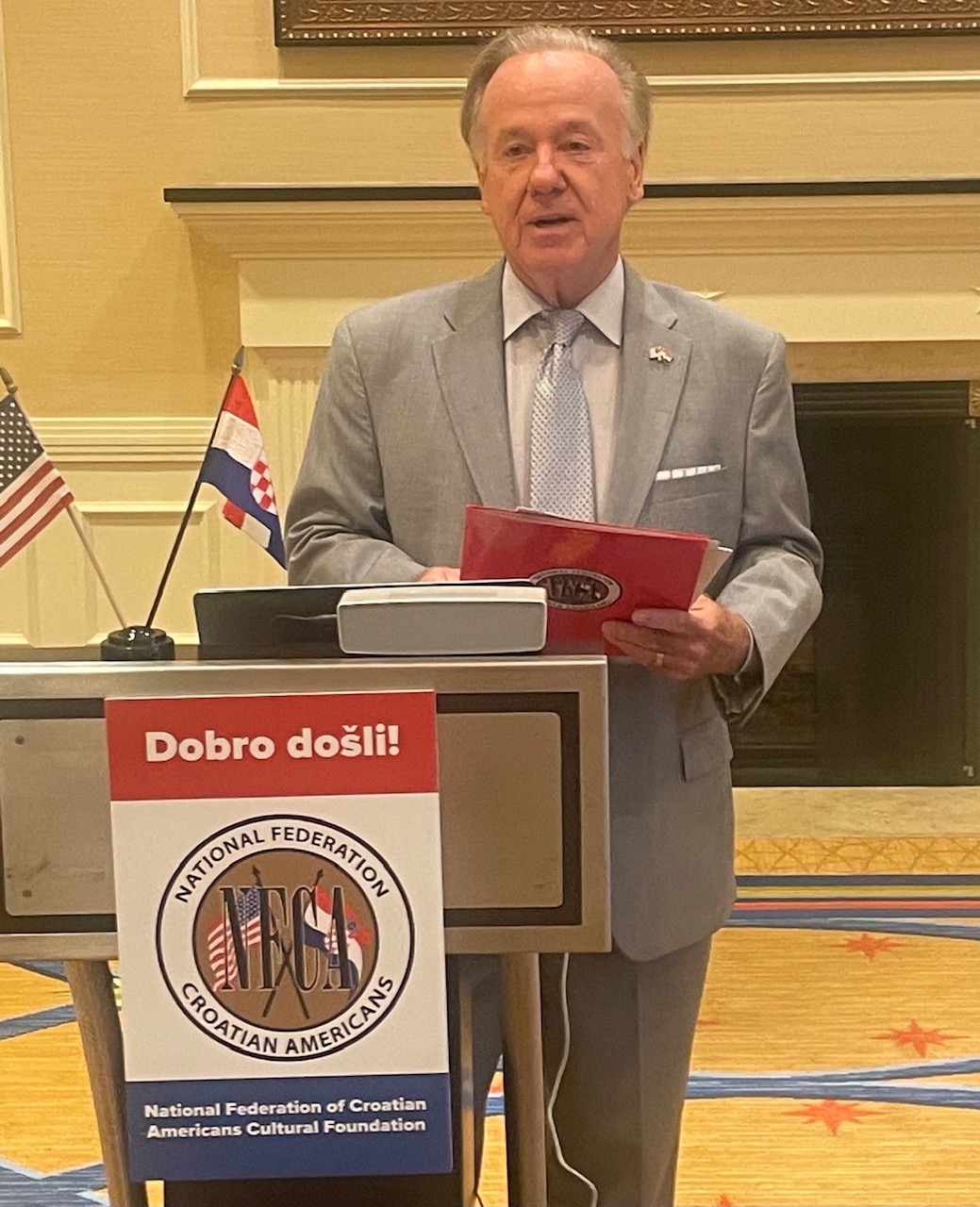
Public Affairs Consultant Joe Foley gave his 23rd Washington Report, highlighting all key NFCACF activities in the nation's capital, including quite a few details about what to expect with the U.S. Senate approval process with the bilateral Avoidance of the Double Taxation treaty. He also shared a few updates about projects connected to the Congressional Croatian Caucus and the Three Seas Initiative. The NFCACF was appreciative that Croatian Ambassador Pjer Simunovic attended the Saturday public session and spoke to all delegates and guests about recent activities in Washington, DC. The Ambassador spoke highly of recent US-Croatia developments and including about the recent visit by Croatia's Interior Minister Davor Bozinovic to the nation's capital and also, about a fifteen-member Croatian government delegation that visited in March too for a very important US-Croatia Strategic Alliance set of high-level meetings.
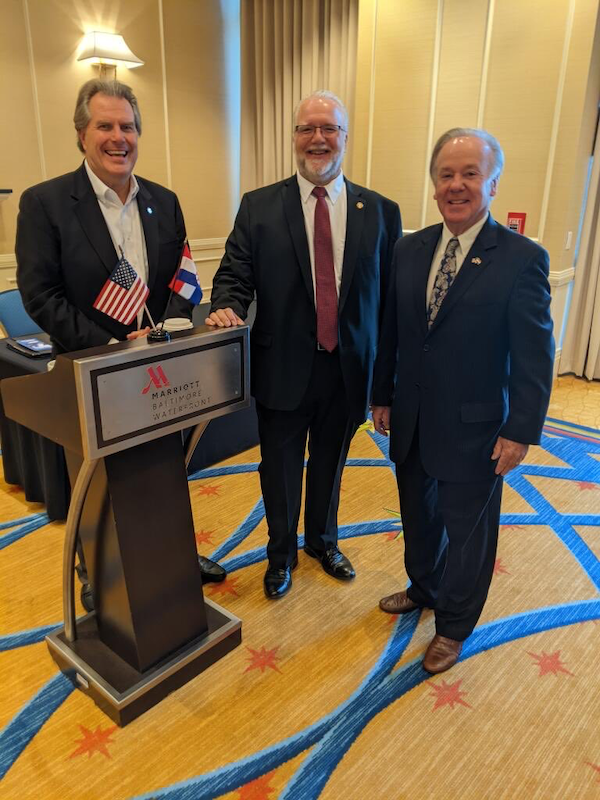
There was a major Croatian American Sports Hall of Fame (CAS-HOF) presentation on Saturday to highlight the plans for this exciting initiative in 2022. CAS-HOF Co-Chair Vedran Nazor shared key details and announced the ten inductees and Sunday, October 16th was chosen for the induction ceremony to be held in Cleveland. CAS-HOF Selection Committee members Steve Rukavina, Tom Steich, Dino Mattisich and Derek Hohn were on hand too. President Rukavina shared details about the group's Special Olympics Committee and the plans to hold a major fundraiser in the Los Angeles area in October, led by Chair Joe Brajevich and also, and committee members Kata Rudela and Dana Kandic, attended the Baltimore meeting.
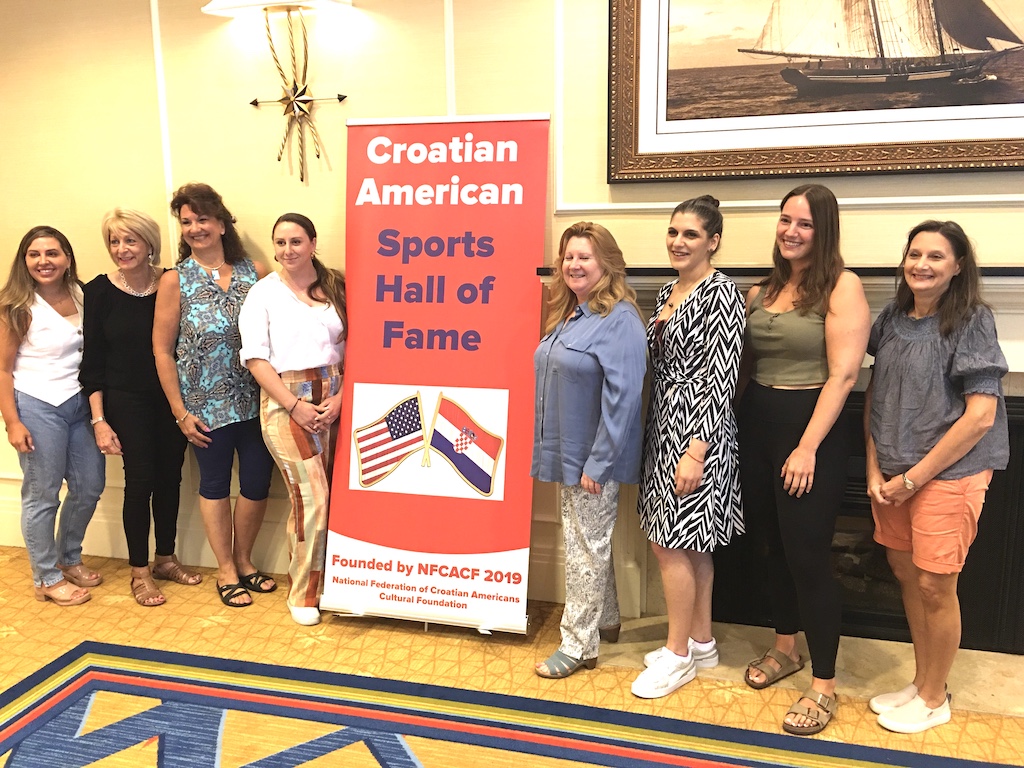
There were four national Presidents participating in the NFCACF's private Friday delegate's meeting with Ed Pazo, Croatian Fraternal Union, John Kraljic, Croatian Academy of America and Dr. Steve Pavletic, of the Association of Croatian American Professionals all joining with Steve Rukavina, the NFCACF President for substantive discussions about ten major Croatian priority projects.
On Friday, July 1st, the elections were held and the newly elected officers of the NFCACF Executive Committee are: included: Steve Rukavina (President) Andrea Novak-Neumann (Executive Vice President), Adam Radman (Treasurer), Anna Maria Sicenica (Secretary), Mark Plavetic (Assistant Secretary) and with three Vice-Presidents, Mario Spalatin, John Kraljic, Biljana Lovrinovic and two officers at-large, Carolyn Bruno, and Bernadette Luketich-Sikaras.
The remaining board members elected: Eric Gregrich, Bob Jerin, Marko Kirn, Nena Komarica, Tom Mustac, Tatjana Mustac, Vesna Jezic, Jim Kresnik, Zvonko Labas, Vedran Nazor, Sanja Newman, Dr. Steve Pavletic, Jelena Rudela, Tom Steich, Judi Zivic and Ron Zivic.
For more, check out our lifestyle section.
Winemakers, Croatian Diaspora from 16 Countries Gather for G2 DiWine Summer
The eighth edition of the business conference MEETING G2 - "DiWine
Summer" was held in Zagreb
About a hundred guests from 16 countries of the world, top winemakers in
two panels, in total
ZAGREB, July 9, 2022 - Traditional and famous MEETING G2 conference,
which connects business people from Croatia and Croatian diaspora, was
held in Zagreb this year under the name "DiWine Summer". Almost a
hundred guests from 16 countries from all over the world gathered in the
hall of the Croatian Heritage Foundation, as the host and partner of the
Conference. Two attractive wine panels and a total of 15 top panelists
and speakers made this conference interesting and attractive. The whole
commendable and useful conference was accompanied by a few glasses of
local wine and enriched by the promotion of excellent Croatian wines,
and ended with a festive dinner, which was graced by the Zaprešić
Boys.
At the very beginning, the president of the MG2 Association Antun
Krešimir Buterin and the director of Matica Mijo Marić greeted those
present, and the special speaker was the guest from Australia, Luke
Jurcevic. Among other things, this successful entrepreneur and president
of the Western Australian-Croatian Chamber of Commerce spoke about
connecting Australian and New Zealand winemakers of Croatian origin, and
one of them - Dennis Yagmich - sent a video message to the participants
from his winery "Yagmich Estate".
The highlight of the meeting was the part called "Who's who in G2",
which is already a well-known part of this Conference, during which all
those gathered briefly introduce themselves to each other, in order to
get to know each other more easily and enable faster business
networking. This year it was led by the former president of MG2, Josip
Hrgetić, and the first to say a few words about himself was the
ambassador of the Republic of Austria to the Republic of Croatia, Dr.
Josef Markus Wuketich, a Croat from Gradišće. This was followed by two
extraordinary panels moderated by the editor of the wine magazine
"Vinum.In" Dijana Grgić, with occasional refreshments with a glass of
sparkling wine.
The first panel entitled "Croatia on the wine map of the world" was
attended by famous and award-winning Croatian winemakers Mateja Žužić
from Winery "Jagunić", Boris Vuglec from Vuglec Breg, Mladen Papak from
"Vina Papak Ilok" and Janko Kezele, representative of "Vina Kezele" ",
while Juraj Sladić from Winery "Testament" responded via video message.
Papak pointed out that domestic winemakers have excellent wines, but we
have a problem with quantity, and that's why we need an association. As
an excellent example of association, Kezele mentioned the Moslavina
variety Škrlet, which had been neglected for years, and all of them
were promoted independently. "We connected about 10 years ago, sales are
now twice as high, and Škrlet is more and more popular", boasted Kezele
and welcomed the recent changes to the Wine Law, which divided Croatia
into only four regions, which will facilitate foreign promotion. Vuglec
and Žužić added that our autochthonous varieties especially have a
bright future, and that tourists coming to Croatia want to taste that
autochthonousness. "Our varieties are wonderful, and there is no reason
why the world should not recognize them," added Žužić. Sladić said
in a video message that our winemakers will never win the match of
volume and low prices, but that they must focus on premium wines and
quality. "We need to take the best, and from our autochthonous varieties
produce modern drinkable wines understandable to the world market". All
the panelists agreed that Croatia is practically still an unknown
country on the wine map of the world, and that as a tourist country, it
must be able to explain to guests "that wine is part of our identity and
culture, that we are a country of good wines and that each of our guests
must try them". Croatia is making serious strides in winemaking, they
concluded and said: "winemakers make Croatia better".
In accordance with the long-standing practice of Meeting G2, at whose
conferences business people from Croatia and the world always gather,
the second panel "Croatian winemakers in the world" gathered Croatian
winemakers and wine experts from abroad. Mate Klikovits from the Mate
Winery, as a Croat from Austria, and Bruno Alexander Gantenbrink, a
German, owner of the Slavonian company Auric Barrels, which produces
wine barrels from Slavonian oak, took part in the panel live in the
hall. Three speakers joined the panel live, digitally with the help of
Zoom: Ivo Jeramaz - head winemaker of the famous California winery
"Grgich Hills" of our expatriate Miljenko Grgich, Mirena Bagur - owner
of the American company "Croatian Premium Wine Imports" from Boston,
which has been importing for several years Croatian wines in the USA,
and Saša Muradori who does the same in Canada through his company
"Croatia Unpacked".
Jeramaz says that he is happy that the Croats continued to grow
autochthonous varieties. "We cannot compete with Chile and Australia in
the production of well-known varieties. The greatest treasure of wine
Croatia is autochthonousness", said the head winemaker of the famous
winery Grgich from Napa Valley. Bagur is satisfied with the increase in
the quality of Croatian wines, and the price-quality ratio is getting
better. However, he believes that we still need to work on marketing and
branding because Croatia is "unfortunately not yet perceived as a wine
destination" in the world. Muradori from Canada also called on the
association of winemakers and branding of wine regions, while Jeramaz
suggested that American sommeliers should be invited to Croatia, because
he is sure that they will "fall in love with our wines". Gantenbrink, as
the owner of the Našić company "Auric Barrels", asserted that
Slavonian forests, especially oak, are perhaps the best in Europe and
that this can also help in the complete branding of Croatian wines. "Be
unique, unique, unique," Gantenbrink told the winemakers.
Wine writer and journalist Željko Garmaz also sent a pre-recorded video
message to the gathering, who, interestingly, is not a supporter of the
thesis that our wines must be exported. "First of all, they should be of
top quality, which they prove year after year, and they must be a lure
that will make tourists come to Croatia even more", Garmaz believes.
Two wine panels weren't all, though! "In vino veritas" is the title of
the closing speech of the advisor to the Croatian Minister of
Agriculture and distinguished professor from the Faculty of Agriculture,
Ivo Grgić, who compared winemaking and viticulture to marriage - it is
necessary to give a lot, in order to get a lot. "Croatia has the best
country with the best people, and let's try to cover domestic demand
with wines first, in order to reduce imports. Winemakers should be
ambassadors of Croatia and all that is beautiful. Tourists are looking
less and less for sun and sea, and more and more for food and wine,"
concluded prof. Grgić. Something completely different for the end of
the Conference, which left a deep impression on everyone gathered was an
inspiring story full of emotions and positive patriotism that brought
tears to the part of the audience. It was told by a man who, with a
Scots friend, became the first Croat to row across the Atlantic, and in
the process not only defeated the ocean, but also himself, storms and
other adversities on a months-long journey, equipped only with oars and
a seven-meter boat! Croatian veteran and retired officer of the Croatian
Army, Werner Ilić, told his incredible life story that began in
Germany, continued in the USA, and has continued in Croatia since the
first day of the Homeland War.
The eighth MG2 conference called "DiWine Summer" was an evening that
will be remembered for a long time. It brought new business
collaborations and friendships, and for some, as longtime friends and
guests testified, it will probably be a business turning point in their
lives! Namely, many experienced their successful turning point precisely
at one of the earlier meetings of MEETING G2.
The conference ended with a gala dinner, which in a mini wine lottery -
thanks to the donation of Mate Klikovits and Luke Jurcevic - delighted a
dozen lucky winners with premium wines from Austria and Australia.
During the dinner there were tastings of wines thanks to our generous
panelists. The participants were entertained by the instrumental group
Robostrop & the CEO, and they were also greeted by members of the
globally popular Zaprešić Boysi group. Saša Pleše and songwriter
Marko Novosel told live the details of the cooperation with the
Association Meeting G2 and the global initiative One Croatia - during
the making of the video for their latest hit - the song "Jedna domovina"
dedicated to the Croatian diaspora. At the end of the evening, the
organizers of Meeting G2 did not hide their enthusiasm for another
successful business conference.
Follow us for more, via the newsletter and our website
https://www.google.com/url?q=http://www.meeting-g2.com&source=gmail&ust=1657356157959000&usg=AOvVaw1OI2sPNQDfxqB_5s2fL4kj">www.meeting-g2.com [4], where you can find a photo gallery of the event.
We will publish stories and thoughts from the conference, introduce our
panelists and guests. And recordings of the conference is coming soon
for everyone who missed it!
Croatian Winemakers Worldwide Join Meeting G2 #DiWine Summer
July 4, 2022 - The eighth MEETING G2 (https://meeting-g2.com/) conference entitled "DIWINE SUMMER" will be held in Zagreb tomorrow, focusing on business connections between the homeland and the Croatian diaspora. The goal of the conference is to connect winemakers of Croatian origin from all over the world, but also the other business people who want to cooperate with the diaspora, regardless of the business sector in which they work.
Some of the best Croatian winemakers from all over the world will gather live and virtually in the premises of the Croatian Heritage Foundation (https://matis.hr/). Meeting G2 is happy and honored to have Ivo Jeramaz, representative of the famous Californian winery Grgich Hills from the USA, as a special guest. He will be one of the panelists of the 2nd panel: "Croatian winemakers around the world". Grgich Hills Estate Winery is one of the best and most popular wineries in the USA, established by Croatian immigrant Miljenko Grgich in 1977. Other panelists are joining the meeting from Australia, New Zealand, Austria and South America.
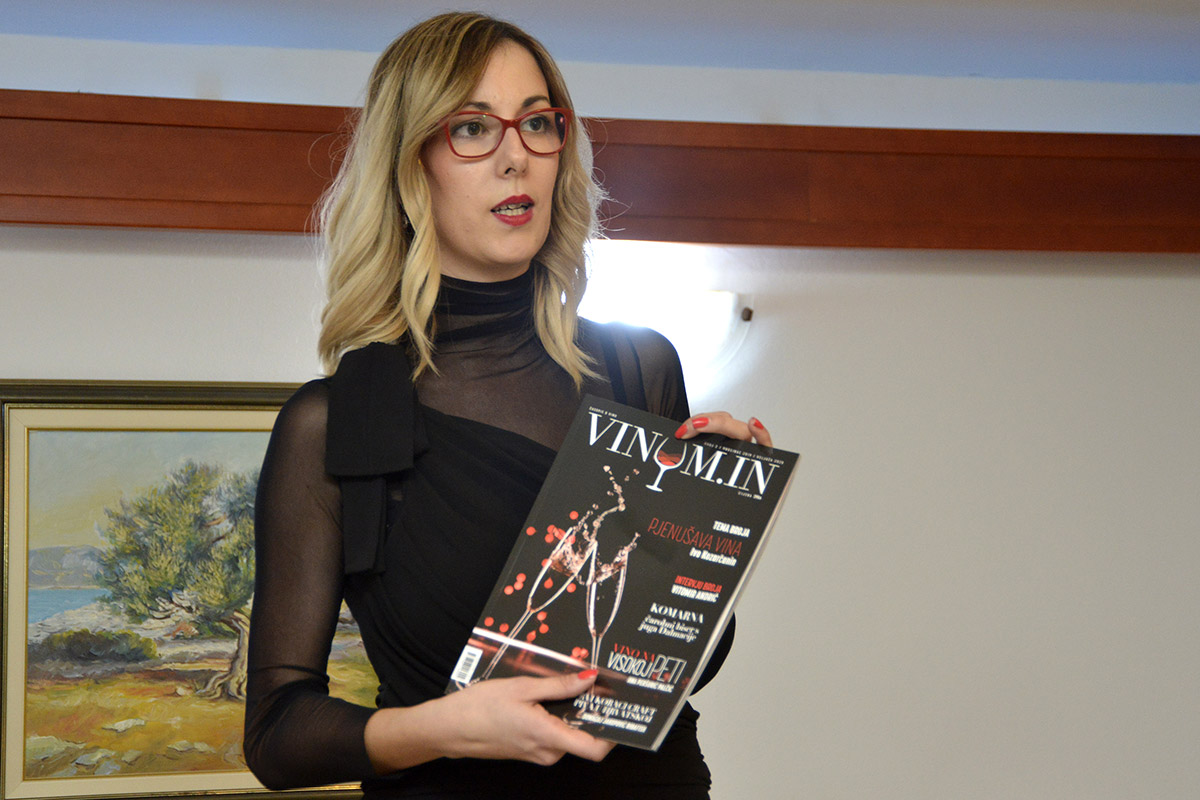
"I think that such conferences are useful and there should be more of them including different topics. G2 Meeting is an ideal opportunity for networking and offering opportunities for new business collaborations. This year, the topic of the panel is "Croatia on the wine map of the world", where we will discuss the possibilities and challenges of positioning Croatia on the world wine scene. We will hear winemakers and their visions, but also our people who live abroad and are involved in winemaking, so they can give concrete advice on what we can and should do better. Croatia is a wine country, but we still have a lot to do to become a recognizable wine region. We have something to offer, we just need to know how to market it. - panel moderator Dijana Grgić, owner and editor of Vinum.in (https://www.vinumin.eu/) magazine, told the media.
More information and a complete program on the website: https://meeting-g2.com/program/
For more, check out our lifestyle section.
Croatian Diaspora Congress Held in Mostar
ZAGREB, 2 July 2022 - The Croatian Diaspora Congress on Saturday called on the Croatian state leadership to help Croats in Bosnia and Herzegovina and urged Croats in Bosnia and Herzegovina to vote in the October general election to achieve equal status with the other two constituent peoples in that country.
"We appeal to the Government, Prime Minister and President of Croatia to join forces in effectively contributing to the interests of Croats in Croatia and the Federation of Bosnia and Herzegovina," the Croatian Diaspora Congress said in a resolution adopted after a three-day meeting in Mostar, southern Bosnia and Herzegovina.
The participants said that the failure to amend electoral legislation in Bosnia and Herzegovina showed how dramatic the situation in that country was, urging the Croats to vote in the general election, scheduled for 2 October, to help the Croatian people survive in Bosnia and Herzegovina.
There is a risk of the four times more numerous Bosniaks again electing the Croat member of the Bosnia and Herzegovina Presidency and a third of Croatian delegates, in which way they would elect and control the government without the leading Croatian parties for which most Croats vote.
The Croatian Diaspora Congress called on the authorities in Croatia and Bosnia and Herzegovina to reverse the negative demographic trends, saying that this could be achieved by boosting economic and overall development. It said that the Croatian diaspora had a huge potential, calling on Croats in Bosnia and Herzegovina, Croatia and elsewhere to establish ties for the purposes of economic progress. It also called for fostering the Croatian cultural and national identity, highlighting the important role of the Catholic Church.
The Fifth Croatian Diaspora Congress was held under the auspices of Croatia's Parliament and State Office for Croats Abroad, the Croatian National Assembly of Bosnia and Herzegovina, and the City of Mostar. It was organised by Croatian associations from around the world.
For more news about the Croatian diaspora, visit our dedicated section.
Australian-Croatian Boy Wins School Project with Croatia Presentation
July 2, 2022 - An 11-year-old Australian-Croatian boy won first place in a Travel Expo school project by presenting Croatian history, culture, traditions, and folklore to his teachers and classmates. TCN had the privilege to talk with his mother, Irena, about their Croatian ancestry.
Arkie Kokoris, an 11-year-old boy from Melbourne, Australia, won first place in a Travel Expo school project, which consisted of presenting information about a country, where he and his 2 colleagues chose Croatia due to his families ties. They were tasked with presenting a Travel Expo stand, encouraging people to visit their chosen country, and were asked to provide information on the natural attractions, climate, tourist destinations, cuisine, culture, history, wildlife, and more.
Arkie's presentation included local products, flags, shirts, traditional costumes, and more. (Photo: Irena Kokoris)
Arkie attends a private Christian school and he’s currently in year six. He included some fact sheets about Croatia and a hand-drawn map which they placed on the wall and a slideshow presentation on interesting facts and the history and culture of Croatia. They included historical buildings and landmarks, nature parks, food, and animals. For the visual display, they included the flag, various souvenirs from Croatia, traditional food items, some sporting memorabilia including a soccer jersey from Dinamo, an authentic Croatian costume from Zagreb, a cookbook, and another book on famous landmarks and buildings in Croatia. One of the students has a 3D printer and made lithographs of famous buildings which would be placed in front of a torch to show the image.
A smaller Arkie with a Croatian football shirt. (Photo: Irena Kokoris)
His presentation obtained first place after a voting process, and a humble first prize of a certificate and a round of applause followed. His fellow classmates had to vote on their favourite display and Croatia won by a landslide.
Total Croatia News interviewed his mother, Irena Kokoris, who, in addition to being great support of her son in the process of designing and executing the project, proudly shared the achievement on social media. Irena’s heritage story is, perhaps, one of the most interesting and touching I’ve read, and I’m really glad that you can learn from it through her own words.
My parents are from the region of Zumberak, Karlovac. They grew up on farms, tending to animals and the land as well as attending school and doing their homework by candlelight. They left in 1971 for Australia as a young and newly married couple, hoping to start a new life together with opportunities for their future children. Upon arrival, they were met by only one relative.
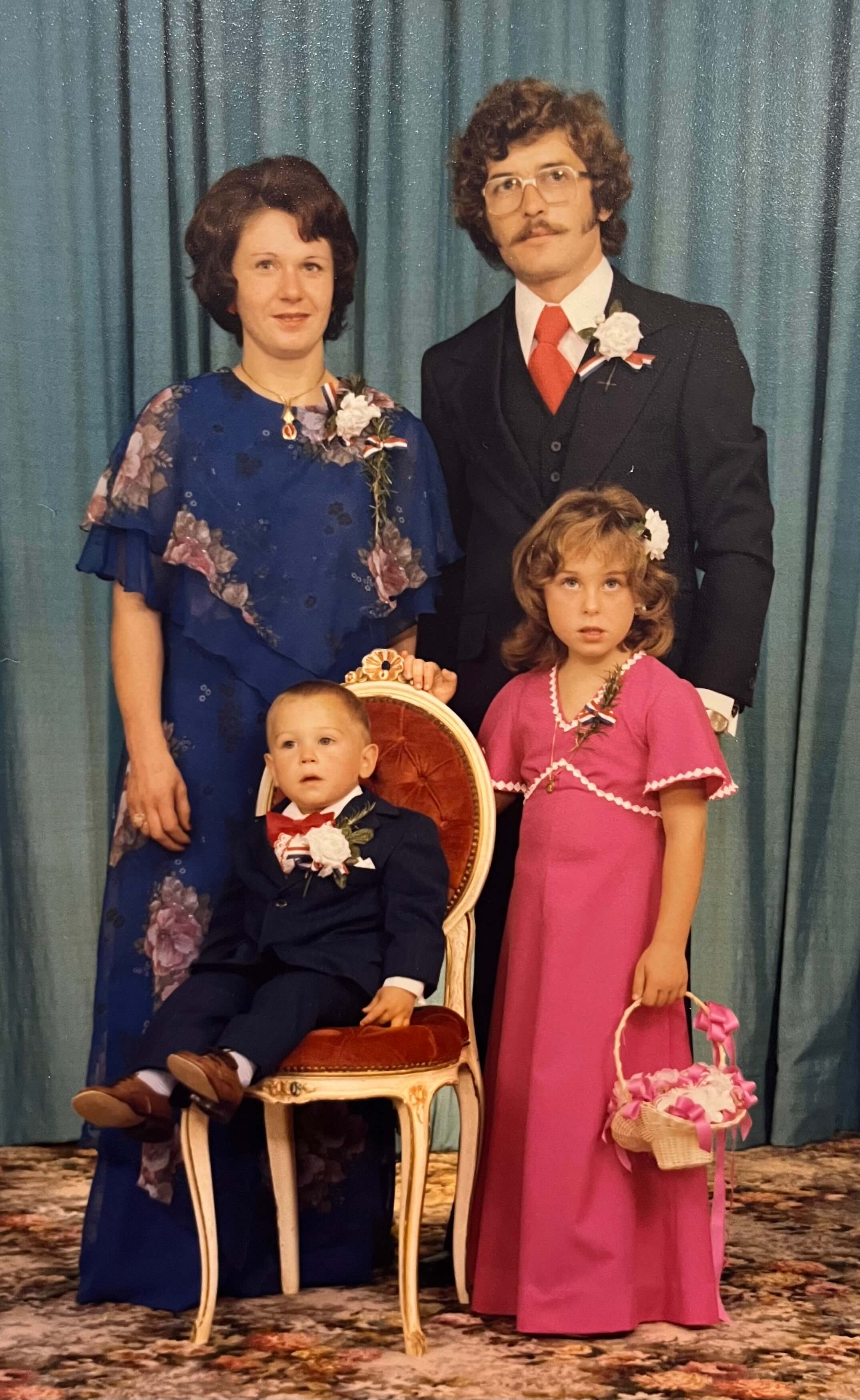
Irena with her father Zdenko Rados, her mother Katica Rados, and her younger brother, Marko. (Family album)
They spent some time in an immigration camp before finding rental accommodation and finding work. They both worked full-time jobs their whole working lives, as well as raising 2 children. They have 6 grandchildren. My father passed away suddenly last year at the age of 69 leaving a large hole in our family. My mother made sure to include the grb on his gravestone, he was a very proud Croat.
Irena's father, Zdenko. (Family album)
What kind of Croatian traditions and customs did you have at home when growing up? Were there Croatian recipes and food as well?
We always celebrated the Catholic holidays with the family, having a pig cooked on the spit, lots of sides, and lots of beer and wine. My parents had many family and friends of Croatian heritage and we always had some kind of gathering to attend on the weekends. Dinner dances, weddings, holy communion or confirmation, birthdays, etc. Mum taught me how to make sarma, gulas, cevapi, kiseli kupus, as well as many other traditional foods. There would be sunka, slanina, kobasice, wine, and sometimes rakija as the seasons allowed.
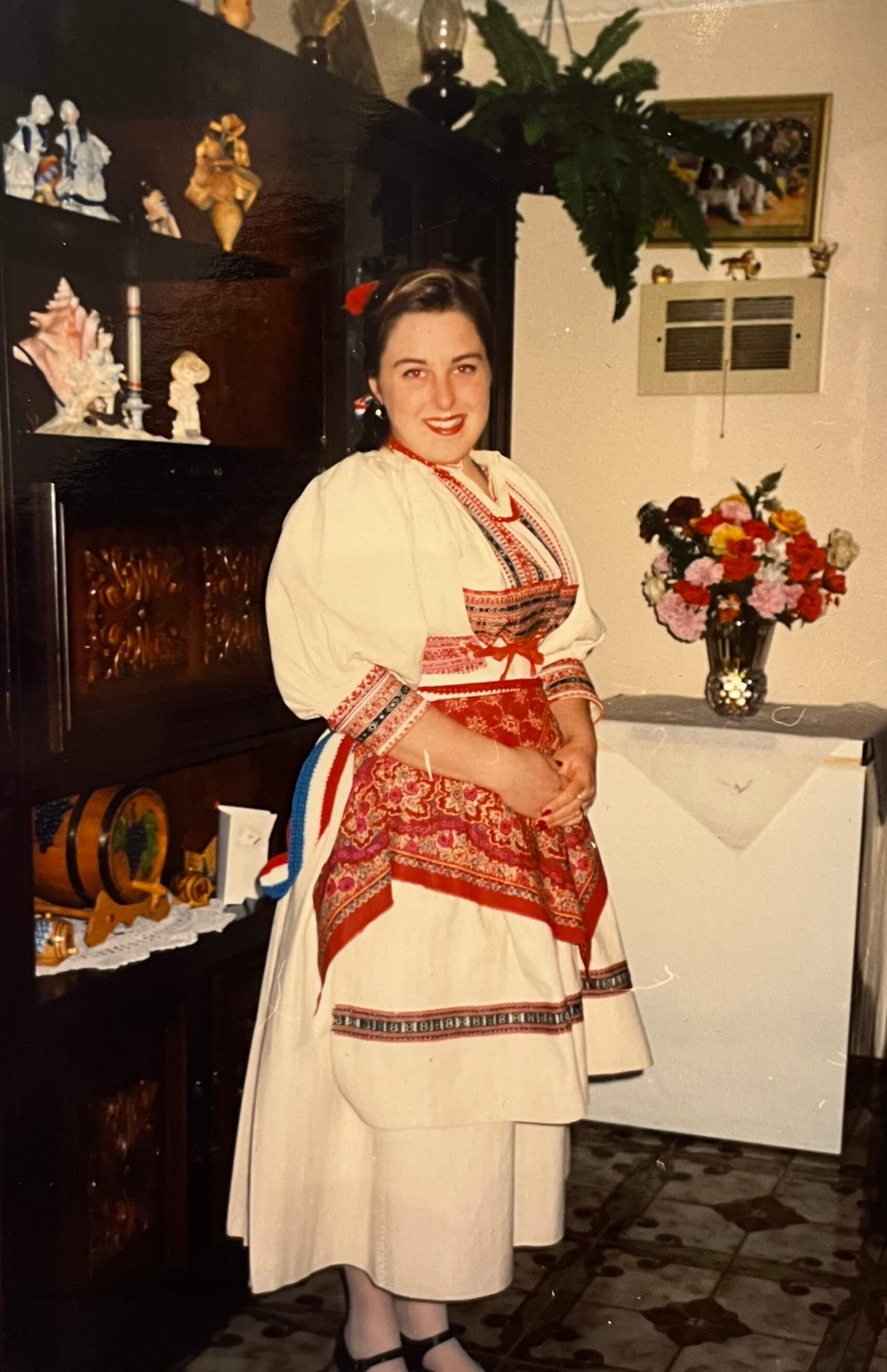
Irena with a Croatian traditional costume. (Family album)
Was there a Croatian community where you grew up? Have you been a part of it? How?
We’re a part of the Hrvatsko Vinarsko Drustvo, Mladi Hrvati Folklore, the Croatian Golf Club, Croatian Saturday School, our church was Sv Nikola Tavelic, and there were many dinner dances organised by the church as well as New Years Eve parties. I danced for many years, into my early 20s, my brother also attended for a few years. Being part of the dancing group, attending many events was some of the happiest memories of my teenage years. One year (around 1990), a large group of Croatian singers and the President of Croatia Stipe Mesic visited the Melbourne Knights soccer club and we sang the Australian National Anthem and danced for them.
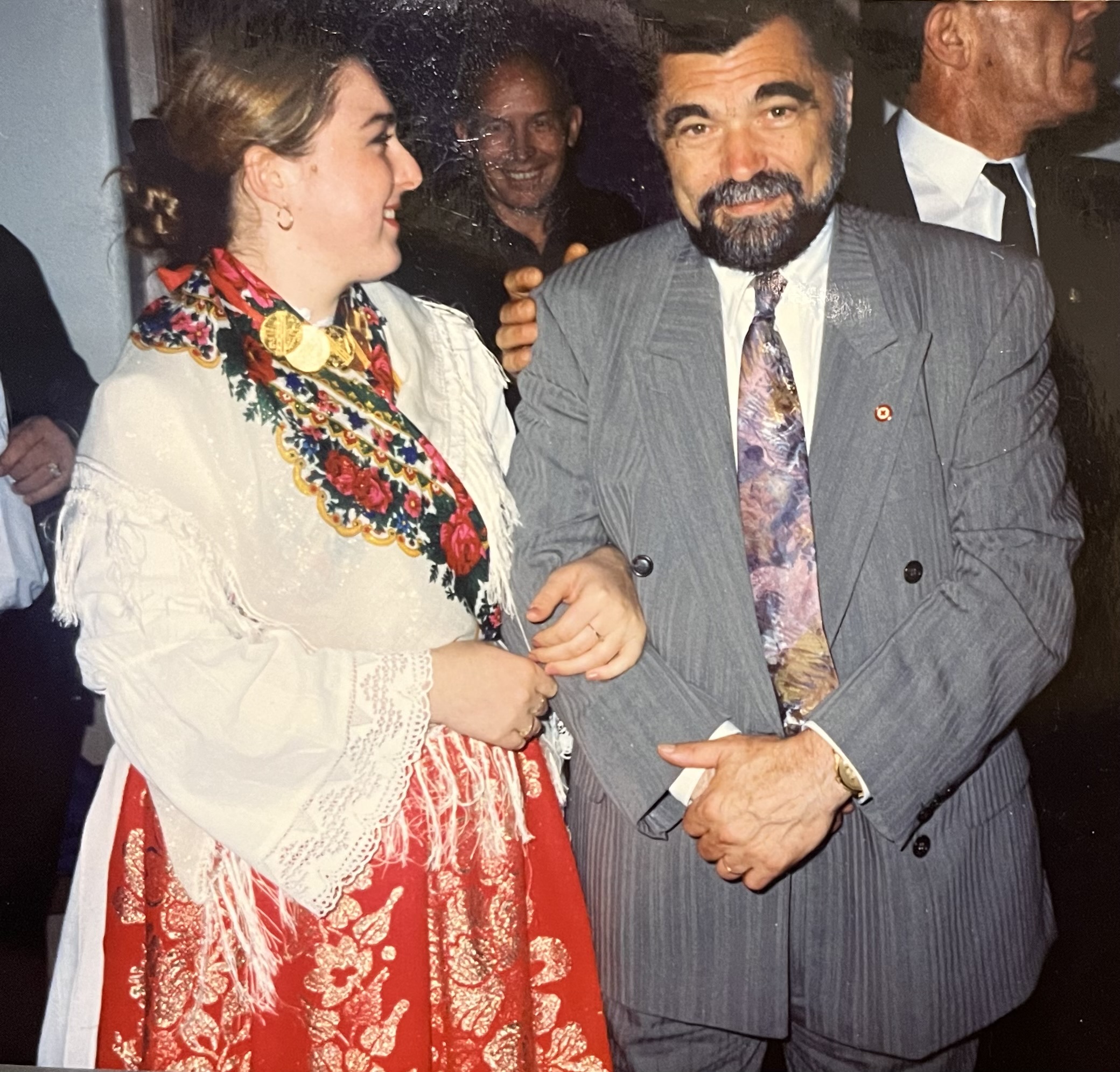
Irena with former Croatian president, Stjepan Mesic. (Family album)
Have you visited Croatia? What was your impression?
Visited in 1985 as a teenager, spent most of the time in the village, but travelled to Slovenia, Rijeka, Zagreb and Karlovac. Visited Plitvice and a few other locations. Spent a lot of time in the forest and on the farm. Picked cherries from the fields and mushrooms from the forest. My parents went back to Croatia in 2014 and took my oldest son Arthur with them for 6 weeks.
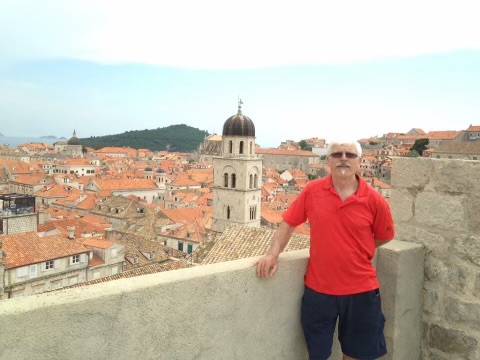
Irena's father Zdenko in 2014 trip to Dubrovnik. (Family album)
They travelled more extensively that time and saw more sights, including Dubrovnik and Split and my son really enjoyed his time there. My dream is to return for a visit and bring my family to see the country of their mother’s heritage. Croatia is such a beautiful country and I feel strong ties. We were planning to go in 2021, but the pandemic changed our plans! My children are old enough now to travel and it is definitely on my bucket list!
Irena's older son, Arthur, went to visit Croatia with his grandparents. (Family album)
What makes your connection to Croatia so strong and special? What is it that you like the most about your Croatian heritage?
Growing up hearing my parents talk about their homeland with such fondness (apart from the hardship). They were mindful to pass on their love and pride in their country to us. We attended Croatian school on Saturdays for many years, learning history, geography and language. I remember our teacher didn’t know any English, so we had to speak Croatian the whole time! Having visited there in 1985 as a young girl, I have such fond memories and loved the land and the carefree attitude of its people.
The Rados family during the 50th year of marriage celebration between Zdenko and Katica. (Family album)
I love that I am of Croatian heritage, I am proud of it and proud that I had the opportunity to participate in the Australian Croatian community for many years in my life. After I married, I became less involved and moved into becoming a mother and wife – of which I am also very proud.
In which ways do you try to teach your children to embrace their Croatian heritage?
I always remind them that despite their surname – they are half Croatian! They have all shown an interest at some stage in learning the language and have picked up a little over the years. They love all the Croatian cuisine – especially the kolace! I involve them in learning some recipes such as punjene paprike, cevapi and raznjici. We have attended a few dinner dances over the years and I think my older two may attend Croktoberfest this year!
Irena's children are of both Greek and Croatian descent. (Family album)
What’s your favorite thing about Croatia?
My favourite thing has got to be the culture around folklore dancing! I think it is beautiful, elegant and regal. The costumes are divine and the music is amazing. I miss dancing so much but am so glad I was a part of it for so long.
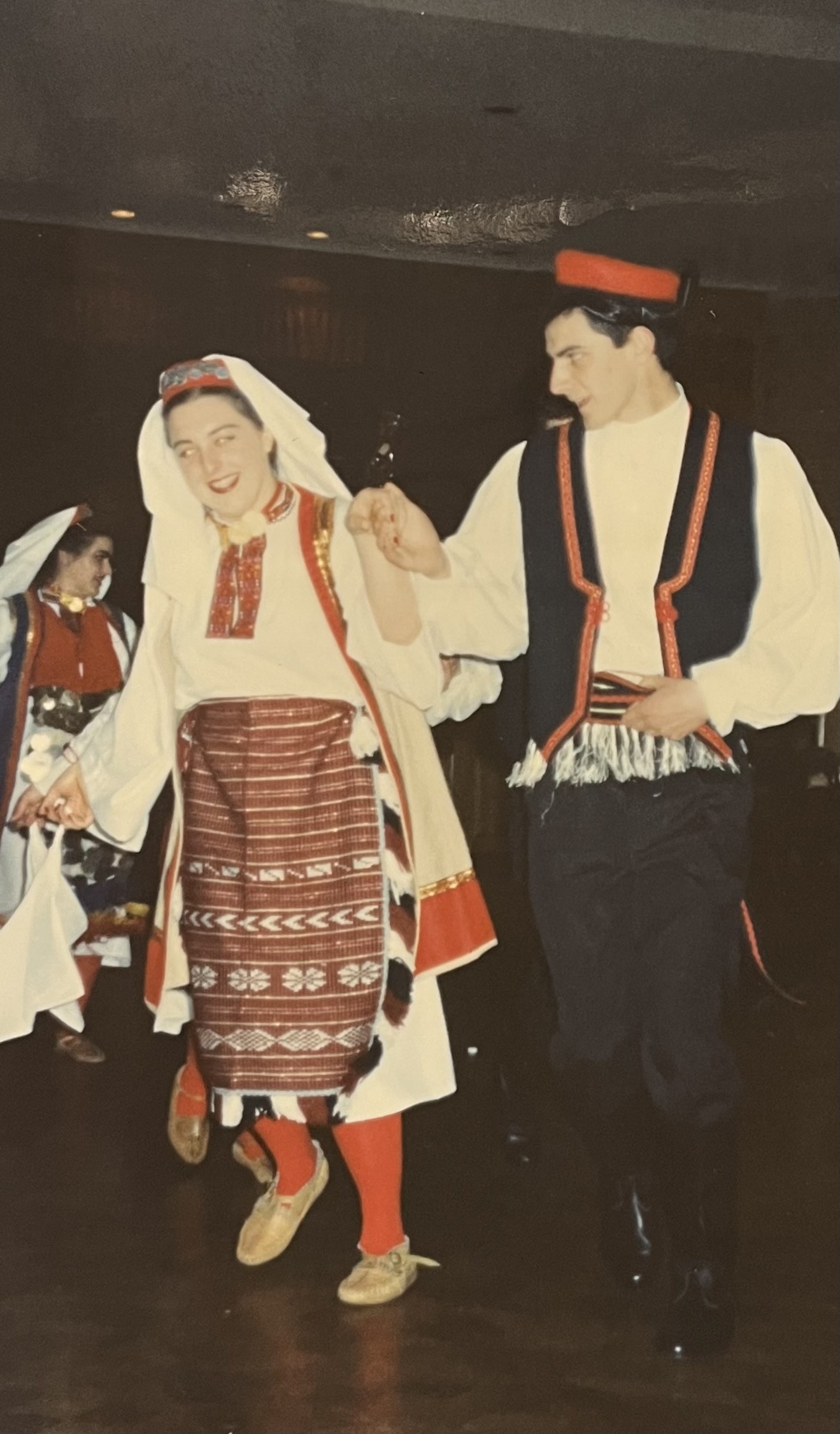
Irena dancing with a friend. (Family album)
Thank you Irena for sharing your story with us!
For more news about the Croatian diaspora, visit our dedicated section.
6th ACAP Conference in New York: CNTB Representatives Discuss Developing Croatian Tourism
June 23, 2022 - The Croatian National Tourist Board (CNTB), as well as the CNTB Office in New York, participated in the 6th Annual ACAP (Association of Croatian-American Professionals) Conference, which was held last week in New York - under the motto "An Evolving Mindset: Innovation, Collaboration, and Sustainability."
Kristjan Staničić, director of the CNTB, pointed out the following during the conference: “The conference gathered more than 300 professionals, many of them Croats with very successful foreign careers and business projects, and many potential partners interested in Croatia. In such an environment, our goal is to highlight the best of Croatian tourism, for which our country is the most recognizable in the global context. We are sure of many positive effects for our country as a whole, because during the conference, in addition to tourism, we talked about many other sectors and areas where there is room for exchange of ideas, additional networking and cooperation that will ultimately result in concrete projects. Staničić further emphasized that the US market is also the most important distant market for Croatian tourism, from which we generate the largest tourist turnover. The conference was also attended by Nikolina Brnjac, Minister of Tourism and Sports of Croatia, who delivered a strategic address.
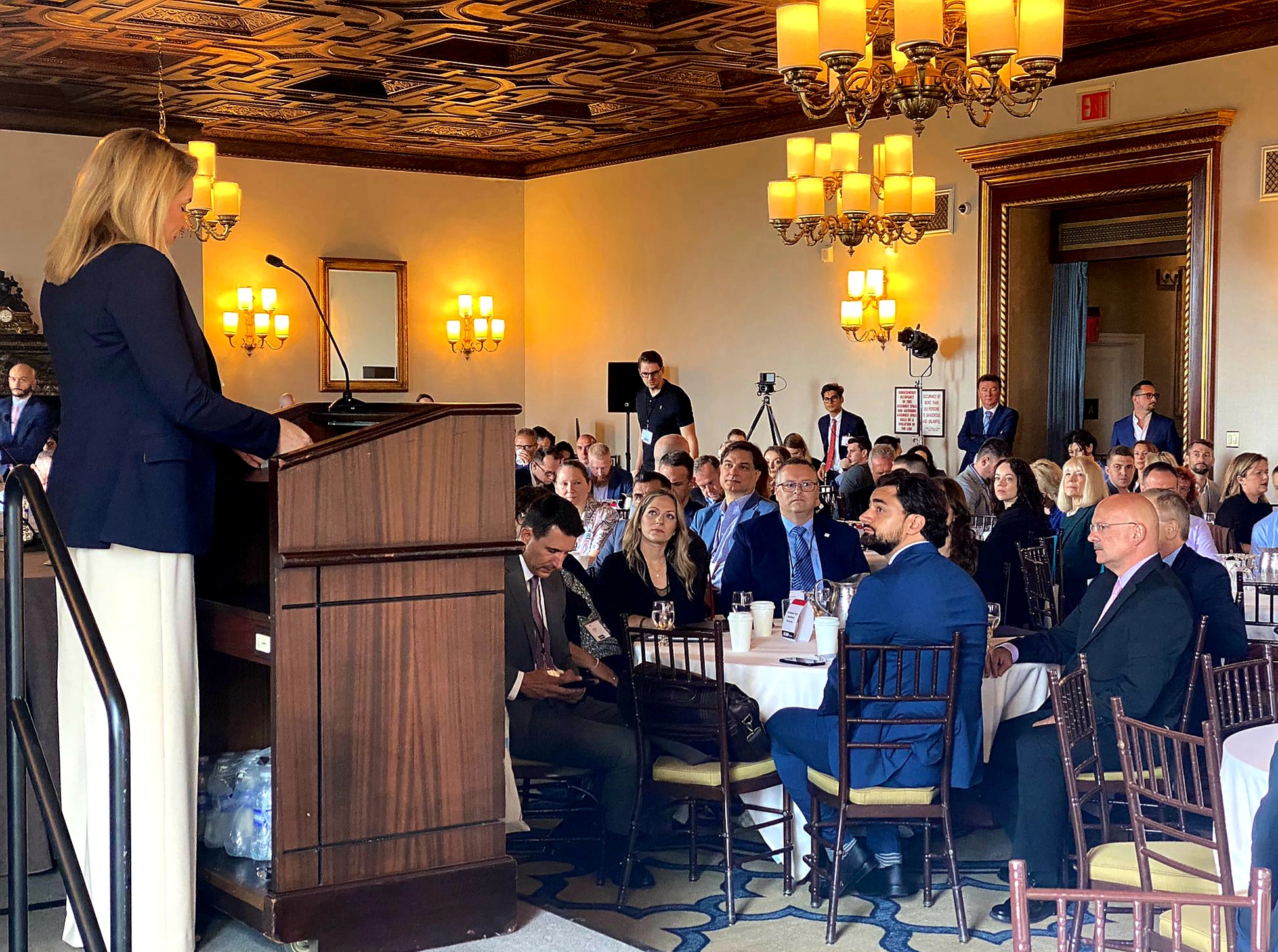
The cooperation between the Croatian Tourist Board and the Association of Croatian-American Professionals referred to the CNTB's host in the evening program of the conference, but also as part of the panel discussion "Building a Sustainable Tourism Ecosystem". The panel discussion was moderated by Leila Krešić-Jurić, Director of the CNTB Office in New York, and was attended by Ognjen Bagatin from the Bagatin Polyclinic, Iva Bahunek, Head of the CNTB Office in Los Angeles, Jeana Havidich, Head of the Working Group for Medical Tourism in Dartmouth-Hitchcock, Jan De Jong, co-founder of Webpower Adria and Antonija Urlić, director of the Association of Unique Croatian Hotels STORIES. Among other things, it was pointed out that Croatia is very well recognized in the world as a destination with extremely preserved and rich natural heritage, while the activities of STORIES were cited as a positive example of sustainable tourism through carefully selected small and unique hotels in Croatia. "The ACAP conference is the first business gathering of professionals from various economic sectors in Croatia and the USA after the pandemic, and the CNTB is a proud partner in the conference, which we expect to bring concrete business results through networking of Croatian companies and American investors. This is not just about tourism, but about various interdependent sectors, where tourism is a link, and often just the first step towards concluding business cooperation, "commented Krešić-Jurić.
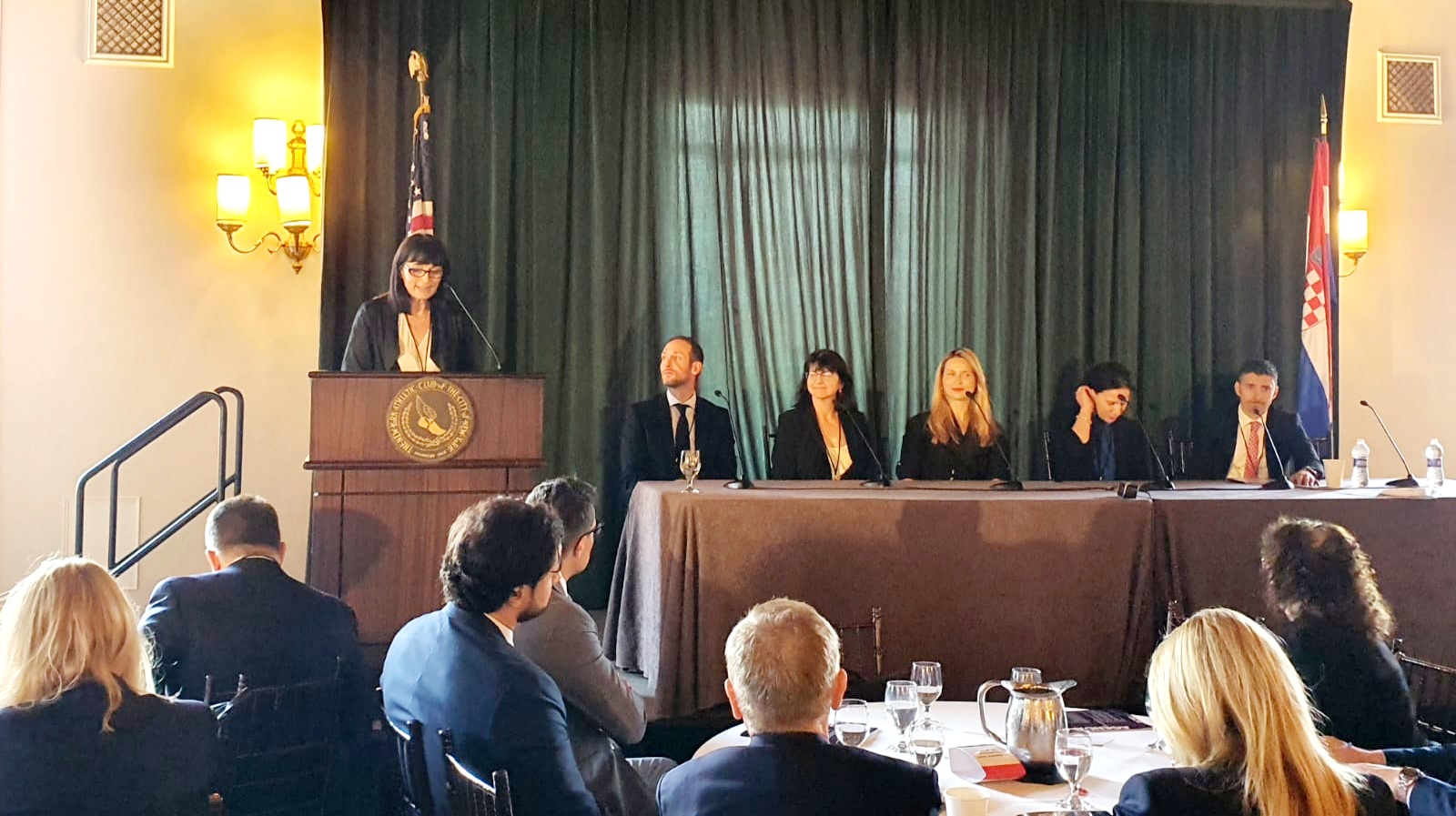
At the same time, business workshops and presentations of the Croatian tourist offer were held in Chicago as a result of cooperation between the Croatian Tourist Board and Signature Travel Network, a well-known American association that brings together the most successful and prominent stakeholders in the tourism industry. In addition to the CNTB, the Dubrovnik Tourist Board presented itself in Chicago. According to the eVisitor system, Americans have made more than 135,000 arrivals and more than 420,000 overnight stays in Croatia so far this year, which is an increase of 385 percent in arrivals and 211 percent in overnight stays compared to the same period last year.

For more, check out our dedicated lifestyle section.


